

ACADEMIC CALENDAR
HILLFIELD STRATHALLAN COLLEGE SENIOR SCHOOL
LAND ACKNOWLEDGMENT
Hillfield Strathallan College is situated upon the traditional territories of the Erie, Neutral, Huron-Wendat, Haudenosaunee and Mississaugas.
This land is covered by the Dish With One Spoon Wampum Belt Covenant, which was an agreement between the Haudenosaunee, Anishinabek and other Indigenous nations to share and care for the resources around the Great Lakes.
As members of the learning community at HSC, we are committed to honouring this covenant by working alongside our Indigenous neighbours and building a sustainable relationship with the land that we all cherish.
School Policies, Practices & Procedures
HSC’s Overall Goals & Philosophy........................4
Land Acknowledgment
Mission
Guiding Educational Principles
Our Ideals
The Senior School...................................................5
Senior School Leadership Team
Timetable, Daily Schedule & Flex Time
2024–2025 Key Academic Dates
Expectations for Students...................................8
Code of Conduct & Safe School Policy
Recognition of Academic Achievement
• HSC Honour Pins
• Ontario Scholars
Attendance Policy
Student Academic Conduct
• Academic Integrity Policy
• Policy on the Timely Submission of Work
• Acceptable Use Agreement
The Ontario Secondary School Diploma
Ontario Secondary School Graduation Diplomas and Certificates......................................................16
Ontario Secondary School Diploma Requirements...........................................................17
Credit Requirements
Ontario Secondary School Literacy Requirement
Community Involvement Requirement & Procedures
Online Learning Graduation Requirement
Curriculum
The Academic Program...........................................20
Curricular Opportunities......................................20
Experiential Learning
E-Learning
Advanced Placement
Assessment, Evaluation & Reporting..................22
Assessment of Student Achievement
Evaluation of Student Achievement
The Calculation of Final Grades
Final Examinations
Reporting Student Achievement
Ontario Student Transcript
• Prior Learning & Recognition
Ontario Student Record
Supports & Resources
Academic Support...................................................27
The Intervention Process for At-Risk Students
Learning Services
English Language Learner Support
IT Services
Senior Learning Commons
Student Success Centre........................................29
Student Success Counsellors
Planning a Pathway/Career Education
Post-secondary Requirements, Applications and Admissions Process
Course Selection
Course Selection Process......................................32
Course Add & Drop Procedures
Understanding your Course Options
List of Course Codes................................................35
Course Descriptions...............................................36
LAND ACKNOWLEDGMENT
Hillfield Strathallan College is situated upon the traditional territories of the Erie, Neutral, Huron-Wendat, Haudenosaunee and Mississaugas.
This land is covered by the Dish With One Spoon Wampum Belt Covenant, which was an agreement between the Haudenosaunee, Anishinabek and other Indigenous nations to share and care for the resources around the Great Lakes.
As members of the learning community at HSC, we are committed to honouring this covenant by working alongside our Indigenous neighbours and building a sustainable relationship with the land that we all cherish.
SCHOOL POLICIES, PRACTICES &
PROCEDURES
HSC’S OVERALL GOALS & PHILOSOPHY
MISSION
Learn with Joy. Live with Purpose. Our core mission is to develop joyful and engaged students who live life with purpose. The best learning happens when students are happy to come to school, have opportunities to follow their passions and participate in deep learning experiences that challenge them. Joyful, engaged students develop strong relationships with their peers and with the caring adults who spark and support their learning both inside the classroom and beyond. A students journey at HSC prepares them to live with purpose – to understand their world, inspire, lead, act and make a difference in their own unique ways.
GUIDING EDUCATIONAL PRINCIPLES
We learn:
• with an understanding of ourselves as learners;
• with each other, and from each other;
• with a blend of challenge and support;
• with an expectation, and the encouragement needed, to lead;
• with excellence honoured and demonstrated;
• through creativity and an entrepreneurial spirit to think critically;
• with resiliency in mind and body;
• an awareness of, and engagement in, global, cultural, economic, social and environmental issues.
OUR IDEALS
A unique element of our strategic plan renewal is the engagement of all HSC students to define the values that should guide our College community. We believe that living these ideals position community members to be well-rounded leaders with a sense of purpose. The chart adjacent outlines the HSC ideals developed by our students.
OUR IDEALS
INTEGRITY
• We are honest not only with our peers and colleagues, but with ourselves
• We stand up for what we believe in
• We take responsibility for our actions
• We are true to our word
• We allow actions to speak louder than words RESPECT
• We understand the importance of being humble
• We think beyond ourselves through empathy and kindness
• We are courteous and compassionate
• We find a sense of worth and value in others and ourselves
• We are conscious and responsible for our own and the College’s environmental sustainability
COMMUNITY
• We build friendships through inclusivity and the celebration of individual differences
• We foster positive relationships at HSC and beyond our gates
• We educate ourselves and each other of issues beyond the College
• We guide and support each other through mentorship
• We create equitable and inclusive spaces for all groups
• We learn alongside each other DETERMINATION
• We are committed and optimistic
• We encourage individuals to strive for their own excellence
• We persevere when faced with adversity
• We learn from our missteps
INDIVIDUALITY
• We inspire and encourage individuals to express themselves positively in the pursuit of their own unique passions
• We value creativity and innovative thinking
• We are confident in who we are and who we will become
• We celebrate our diverse experiences and their influence on us
THE SENIOR SCHOOL
SENIOR SCHOOL LEADERSHIP TEAM
The Senior School Leadership Team is always happy to assist you. Please do not hesitate to contact us.
905-389-1367
hsc.on.ca
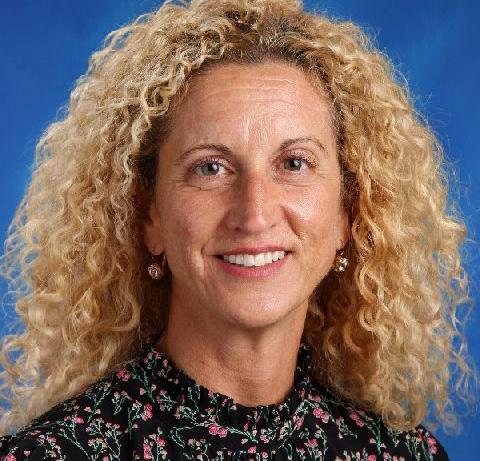
TAYA CICCHETTI
Senior School Principal
taya.cicchetti@hsc.on.ca 905-389-1367, ext. 229

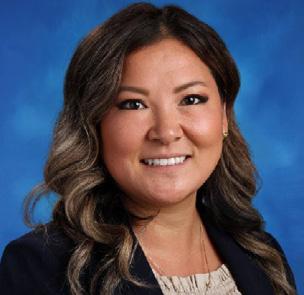
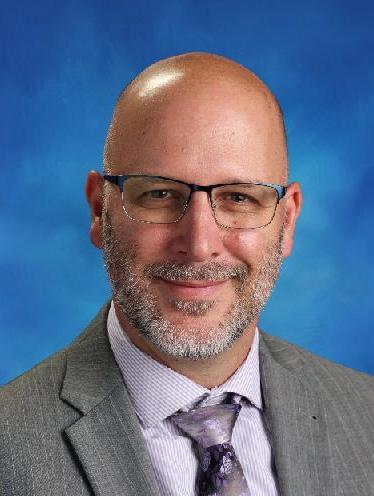
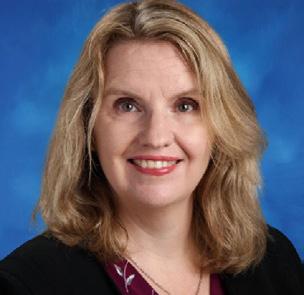
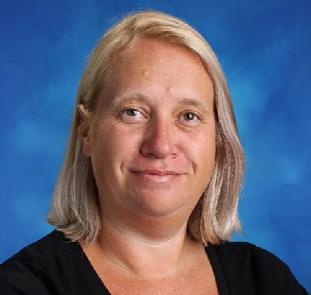
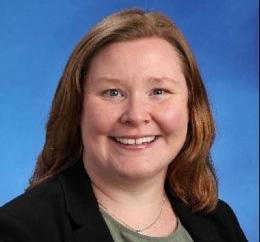
MARC EDGAR
Senior School Vice Principal, 11–12
marc.edgar@hsc.on.ca 905-389-1367, ext. 220
NINA LEE
Senior School Vice Principal, 9–10
nina.lee@hsc.on.ca 905-389-1367, ext. 142
ALLAN GAUMOND
Senior School Vice Principal, School Life
allan.gaumond@hsc.on.ca 905-389-1367, ext. 141
JAN MORRISON
Vice Principal, Academic Administration (Grades 5-12)
jan.morrison@hsc.on.ca 905-389-1367, ext. 233
HEATHER RODRIGUEZ
Senior School Administrator
heather.rodriguez@hsc.on.ca 905-389-1367, ext. 196
YVONNE TESTA
Guidance and Post-Secondary Planning Director
yvonne.testa@hsc.on.ca 905-389-1367, ext. 266
TIMETABLE, DAILY SCHEDULE & FLEX TIME
TIMETABLE
HSC’s Senior School operates in a semestered timetable where students take up to four courses in Semester 1 and then switch to a different four courses in Semester 2. Our timetable is also a tumbling block timetable; this means that students do not have the same courses at the same time every day. If, for example, a student has their English class during block A, then during each eight-day cycle that student would have English twice during period one, twice during period two, twice during period three, and twice during period four. The courses tumble according to the following schedule:
DAILY SCHEDULE
In instances where there are special events or activities, such as Remembrance Day for example, that day’s unique schedule will be posted on the myHSC calendar. Otherwise, each school day operates according to the following schedule:
8:40 a.m. – 9:50 a.m. Period 1
9:55 a.m. – 10:35 a.m. Flex Time
10:35 a.m. – 11:45 a.m. Period 2
11:45 a.m. – 12:50 p.m. Lunch
12:50 p.m. – 2:00 p.m. Period 3
2:05 p.m. – 3:15 p.m. Period 4
FLEX TIME
Flex time is an important feature of the daily schedule and contains valuable programming that often transcends all areas of the curriculum. In a typical week, flex time will happen according to the following schedule:
Monday Tutorial Group Meetings Tuesday Academic Support
Wellness Activities
Thursday Academic Support
Friday Chapel
TUTORIAL GROUP MEETINGS (MONDAYS)
The tutorial program aims to cultivate connection, community and belonging by providing a supportive network for students and fostering both personal and academic growth. This network consists of a lead teacher and grade level peers who will be together throughout their Senior School journey. The program aims to develop the whole student with an emphasis on inclusivity, social-emotional learning and skill development, ultimately preparing students for success in postsecondary studies and beyond.
ACADEMIC SUPPORT (TUESDAYS AND THURSDAYS)
To recognize the unique needs of individual learners, and to help students develop executive functioning skills, students choose how to best spend this time in pursuit of their curricular goals. This can include seeking extra help in a particular subject, studying quietly in the Senior Learning Commons, or finding a space to collaborate on a group project. Teachers and classrooms from all subject departments are available during this time. Vice-Principals supervise the hallways to ensure all students are engaged in an academic endeavour.
WELLNESS ACTIVITIES (WEDNESDAYS)
According to the Ontario Ministry of Education, “Students’ health and wellbeing contribute to their ability to learn in all disciplines, and that learning in turn contributes to their overall wellbeing. A well-rounded educational experience prioritizes wellbeing and academic success for all students by promoting physical and mental health, social-emotional learning and inclusion”. For this reason, we ensure that each student engages in a wellness activity of their choice at least once per week. The activities available vary by term, but always include a variety of physical activities, creative pursuits and mindfulness activities.
CHAPEL (FRIDAYS)
Chapel is a longstanding tradition at HSC, and while it dates back to the school’s Protestant roots, over the years this weekly occasion has evolved into a special opportunity to gather as a College to reflect and celebrate. While some traditional elements of “original” Chapel remain, such as story-telling and singing, these items are inspirational rather than religious, reflective rather than worshipful.
Chapel is also one way that HSC celebrates its own diversity and delivers a culturally responsive and relevant pedagogy. According to the Ontario Ministry of Education, “In an inclusive education system, students must see themselves reflected in the curriculum, their physical surroundings, and the broader environment, so that they can feel engaged in and empowered by their learning experiences”. Through educational and artistic/musical presentations by various cultural and/or affinity groups throughout the academic year, the College collectively learns about Indigenous Truth and Reconciliation, Black Excellence, and the annual religious celebrations of many different faith groups.
2025–2026 KEY ACADEMIC DATES
Please take note of the following key dates in the academic year:
Date
Monday, September 8, 2025
Thursday, October 16, 2025 and Tuesday, October 21, 2025
Thursday, November 6, 2025
Tuesday November 20, 2025
Thursday, January 15, 2026 through to Wednesday, January 21, 2026
Wednesday, January 28, 2026
Friday, February 6, 2026
Thursday, February 26, 2026 and Tuesday, March 3, 2026
Friday, April 10, 2026
Tuesday, April 21, 2026
Tuesday, June 2, 2026 to Monday, June 8, 2026
Tuesday, June 23, 2026
Event
Course change request due at 9:00 a.m. for Semester 1 and 2
Semester 1 parent-teacher-student interviews
Mid-semester report cards available in myHSC
Last day to drop a course for Semester 1*
Semester 1 final examinations
Last day to add a course for Semester 2
Semester 1 final report cards
Semester 2 parent-teacher-student interviews
Mid-semester report cards available in myHSC
Last day to drop a course for Semester 2*
Semester 2 final examinations
Semester 2 final report cards
* If a student in Grade 11 or 12 receives permission from the Senior School Principal to withdraw from a course after this time, the student’s percentage grade at the time of the withdrawal will be entered in the OST and a “W” will appear in the “credit earned” column of the OST, in accordance with provincial guidelines.
EXPECTATIONS FOR STUDENTS
HSC CODE OF CONDUCT & SAFE SCHOOL POLICY
HILLFIELD STRATHALLAN COLLEGE ENDEAVOURS TO FOSTER A SAFE, RESPECTFUL AND NURTURING ENVIRONMENT FOR ALL MEMBERS OF OUR COMMUNITY, AT ALL TIMES. BECOMING A MEMBER OF THE HSC COMMUNITY MEANS COMMITTING TO FAIR AND EQUITABLE TREATMENT FOR ALL, REGARDLESS OF RACE, RELIGION, ETHNICITY, NATIONALITY, ECONOMIC OR SOCIAL STATUS, GENDER, GENDER IDENTITY OR EXPRESSION, OR ABILITY/DISABILITY. HSC TAKES THIS COMMITMENT SERIOUSLY, AND TRANSGRESSIONS AGAINST THIS EXPECTATION WILL RESULT IN APPROPRIATE DISCIPLINARY ACTION AS OUTLINED BELOW. TRANSGRESSIONS MAY INCLUDE, BUT ARE NOT LIMITED TO, MICROAGGRESSIONS, DIGITAL AND ONLINE OFFENCES, AND DIRECT OR INDIRECT INTERACTIONS INVOLVING AN INDIVIDUAL OR GROUP.
The Code of Conduct at HSC outlines the social and behavioural norms that every member of the College community is expected to follow in order to ensure that the school can meet its mission of being a safe, respectful, accepting and engaging learning environment. To this end, the College is committed to fostering leadership, academic excellence and community involvement in an environment that prepares students for academic and personal success and active citizenship. The College believes that all students should enjoy our school equally and feel safe and accepted and that each student, teacher, staff member, and parent has the responsibility to contribute in a positive way to the broader learning community at HSC.
By enrolling at Hillfield Strathallan College, students and parents automatically assume the obligation to comply with the Code of Conduct. At the heart of the Code of Conduct is the understanding that each member of the HSC community will follow certain standards of behaviour. Honesty, respect, integrity, tolerance, self-discipline, and a willingness to accept responsibilities for one’s actions are all central tenets underlying HSC’s Code of Conduct.
In order to help promote a culture of care at HSC, the School Life Coordinators and Administrative Leadership Teams in each of the four school divisions actively work to promote and develop a values education program that provides students with opportunities for community gatherings, global awareness, social responsibility, active citizenship, service-learning and positive leadership development. At the core of the program is the expectation that all members of the community will develop awareness for the needs and sensitivities of others and that they will exhibit behaviours that support mutual respect.
The complete Code of Conduct is published on myHSC and can be found under HSC's Policies and Procedures resource board.
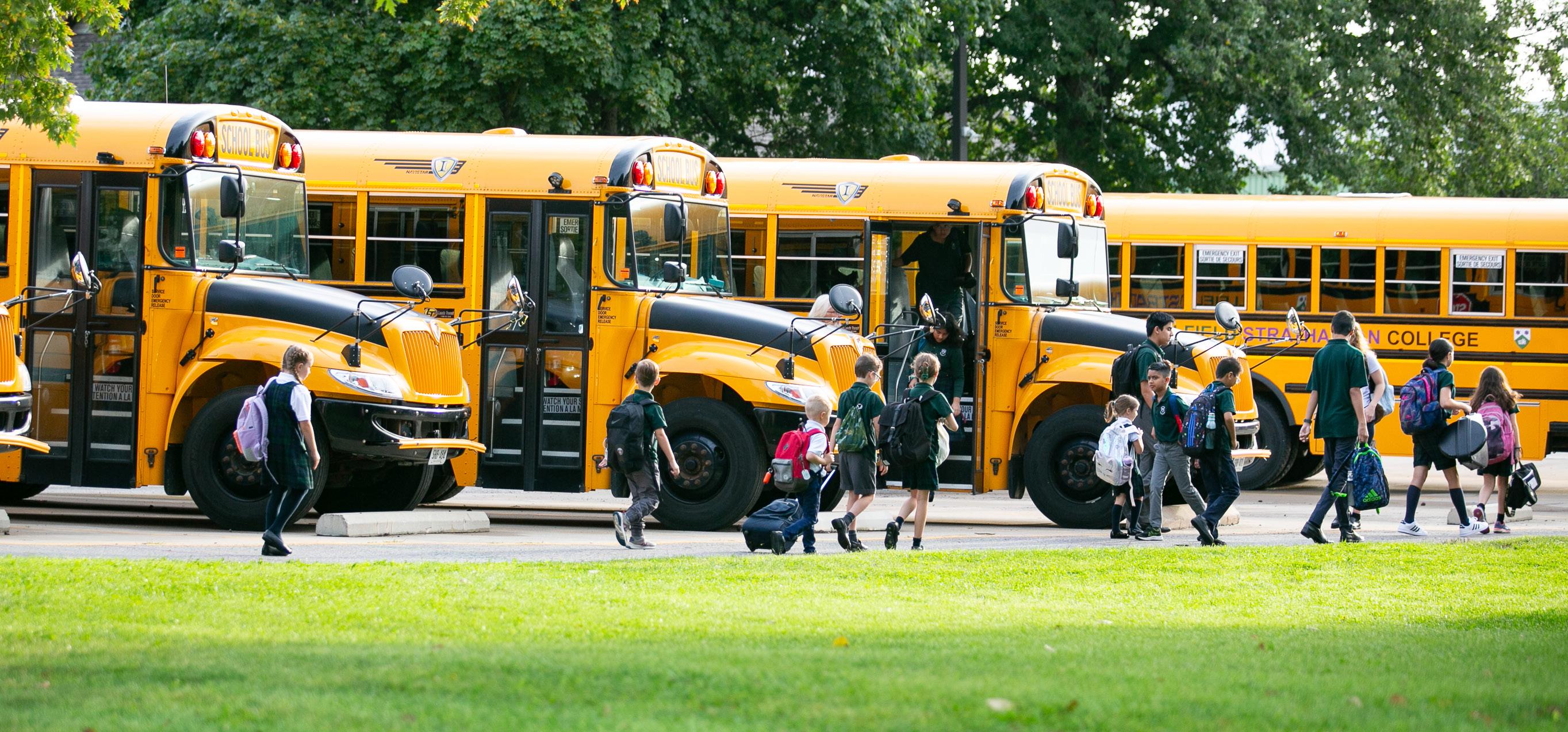
RECOGNITION OF ACADEMIC ACHIEVEMENT
HSC HONOUR PINS
The HSC Honour Pin recognizes academic excellence over the course of a school year and is awarded to students who achieve an overall average of 85 per cent over the academic year; an explanation of how that average is calculated is listed below. Please be advised that in order to be eligible for an HSC Honour Pin, students must maintain the minimum course load. Only courses taught by HSC, or courses taught through the eLearning Consortium of Canada will be considered in determining a student’s average towards their HSC Honour Pin status. Courses taken at other schools/providers (such as VHS, OVS or a local school board) will not be included as “courses credited by HSC.”
Grades 9 and 10:
» The average consists of eight full credit courses credited by HSC over the academic year.
Grade 11 students:
» The average consists of seven full credit courses credited by HSC over the academic year.
Grade 12 students:
» The average consists of six full credit courses credited by HSC over the academic year.
Note: This Honour Pin policy has been in effect since September of 2020.
ONTARIO SCHOLARS
Ontario Scholars are high school graduates who attain an average of 80 per cent or greater in their six best Grade 12 courses, regardless of which academic year the credit was awarded, or which institution (HSC or another provider) awarded it. It may be awarded as a graduate, or a post-graduate and thus include students who have completed courses following their departure from HSC. The Ontario Scholar recognition is the broadest recognition of academic work completed, regardless of the institution in which it is taken.
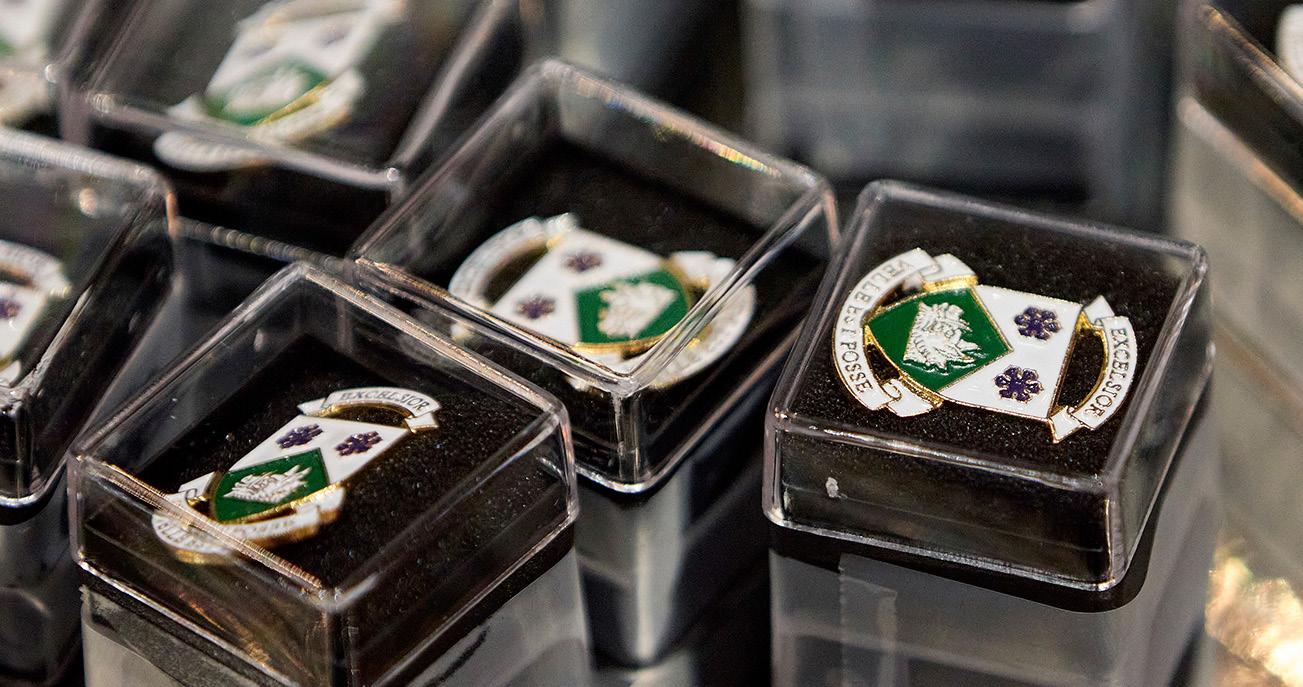
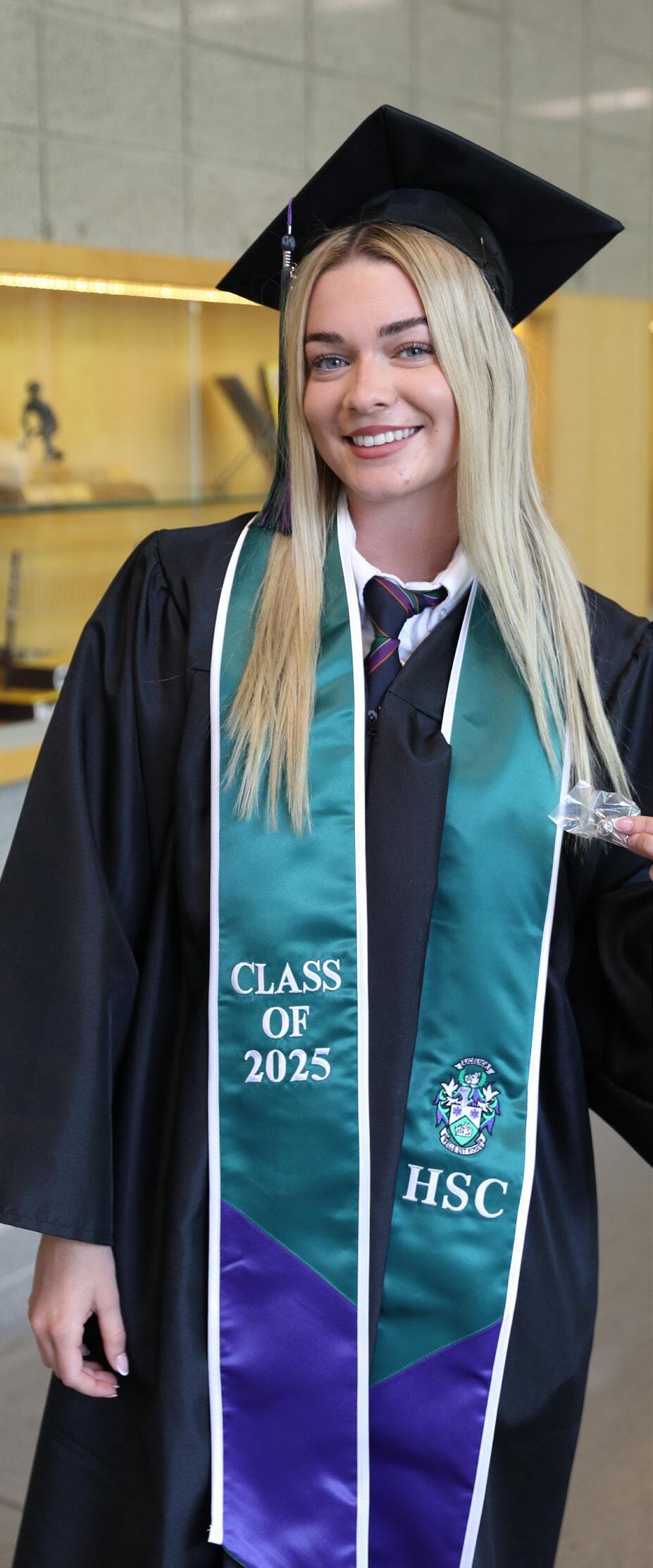
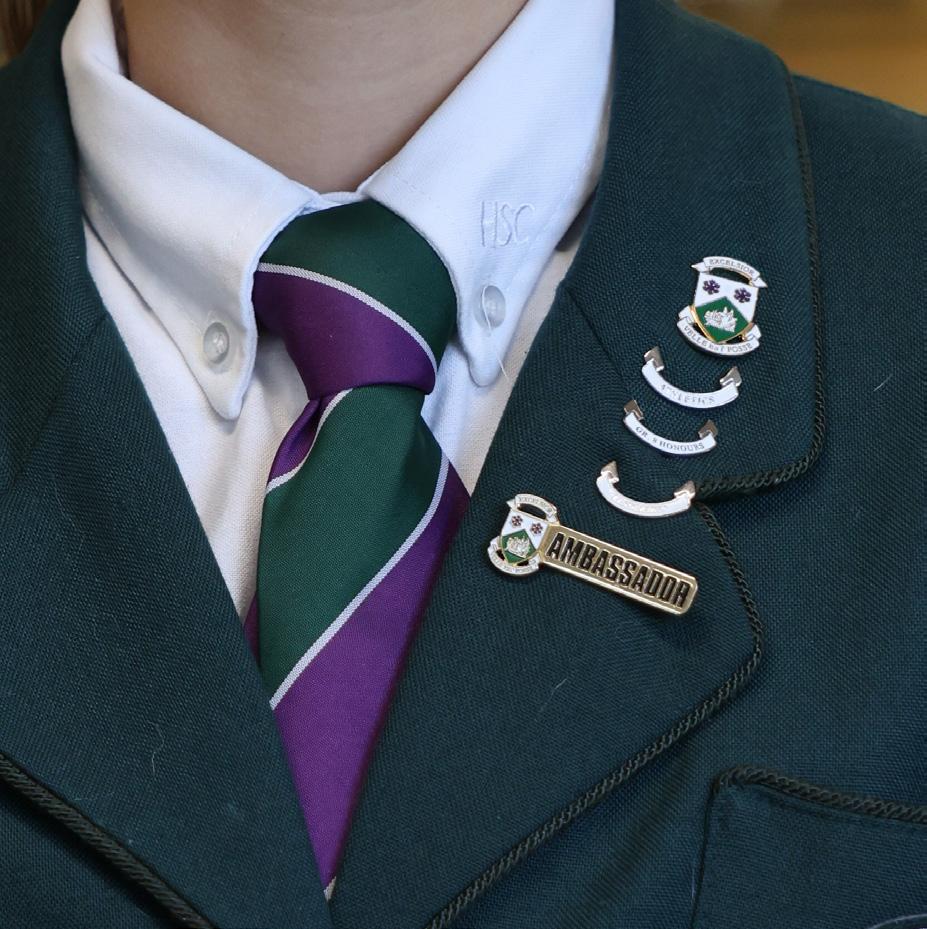
ACCEPTABLE
Please read through the policy to be sure you understand your obligations as a student using HSC’s IT resources. This policy applies to all students in grades 5 to 12 attending Hillfield Strathallan College.
Student Expectations:
1. I will use Information and Communications Technology (ICT) for learning purposes as directed by my teachers and coursework.
2. I will be responsible for the activities conducted with my account credentials
3. I will keep my passwords private and not let anyone else log in with my username
4. I will not search, create or send materials that may offend, harass or humiliate others.
5. I will not impersonate a member of the HSC community online or share personal information related to them.
6. I will not use my cell phone or wearable device during school hours (unless sanctioned by my teacher) in order to maintain a focused and productive learning environment.
7. I will only use AI tools responsibly under the direction of a teacher to enhance my learning experience.
8. I will not use search engines to retrieve inappropriate content.
9. I will not share anyone’s personal information without their consent.
10. I will seek permission from individuals, including teachers, before taking photos, recording sounds or filming them.
11. I will only use online sites which are appropriate and follow their terms of service.
12. I will abide by copyright and intellectual property regulations.
13. I will not tamper with the College’s network systems or security.
14. I will not log into any HSC or other account using another person’s credentials.
15. I will use HSC’s ICT for educational purposes at school and at home.
16. I will bring a charged digital device with a power adapter/charger to school each day.
17. I will be respectful of others and not use my device to download or stream content that is not relevant to my learning.
18. I will abide by the student expectations regarding my online behaviour as outlined in the College Handbook.
19. I will seek permission before posting photos and videos created on campus or wearing HSC-branded clothing unless assigned and approved by a teacher.
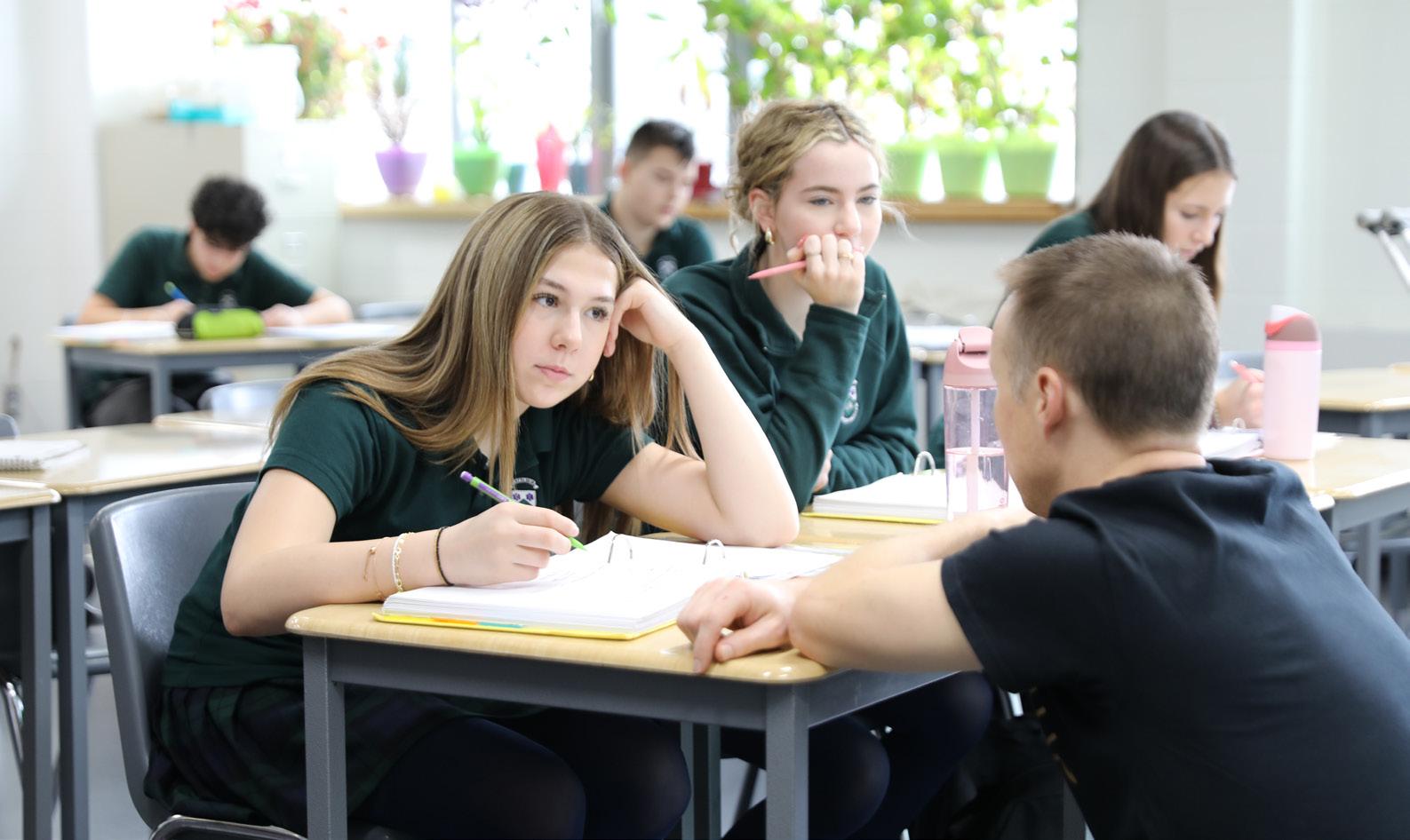
20. I will be responsible for any hardware borrowed from the College, and my account will be charged the replacement amount in the event of loss or damage.
21. I will notify a teacher or administrator if I witness inappropriate online behaviour online.
Student Use of Social Media:
Social Media includes websites and applications that allow users to share content with others online. This includes platforms such as Instagram, TikTok, X, Facebook, Snapchat, etc.
22. I will not use social media during school hours for non-school-related activities.
23. I will not use the College’s network to access social media, even outside of school hours for non-school-related activities.
24. I will not create or manage schoolaffiliated social media accounts.
25. I will not use the HSC name, logo, or images (such as a student uniform) on social media without permission.
26. I will communicate with HSC employees using only schoolapproved platforms such as Gmail and Google Chat.
27. I will not request to follow any employee personal accounts.
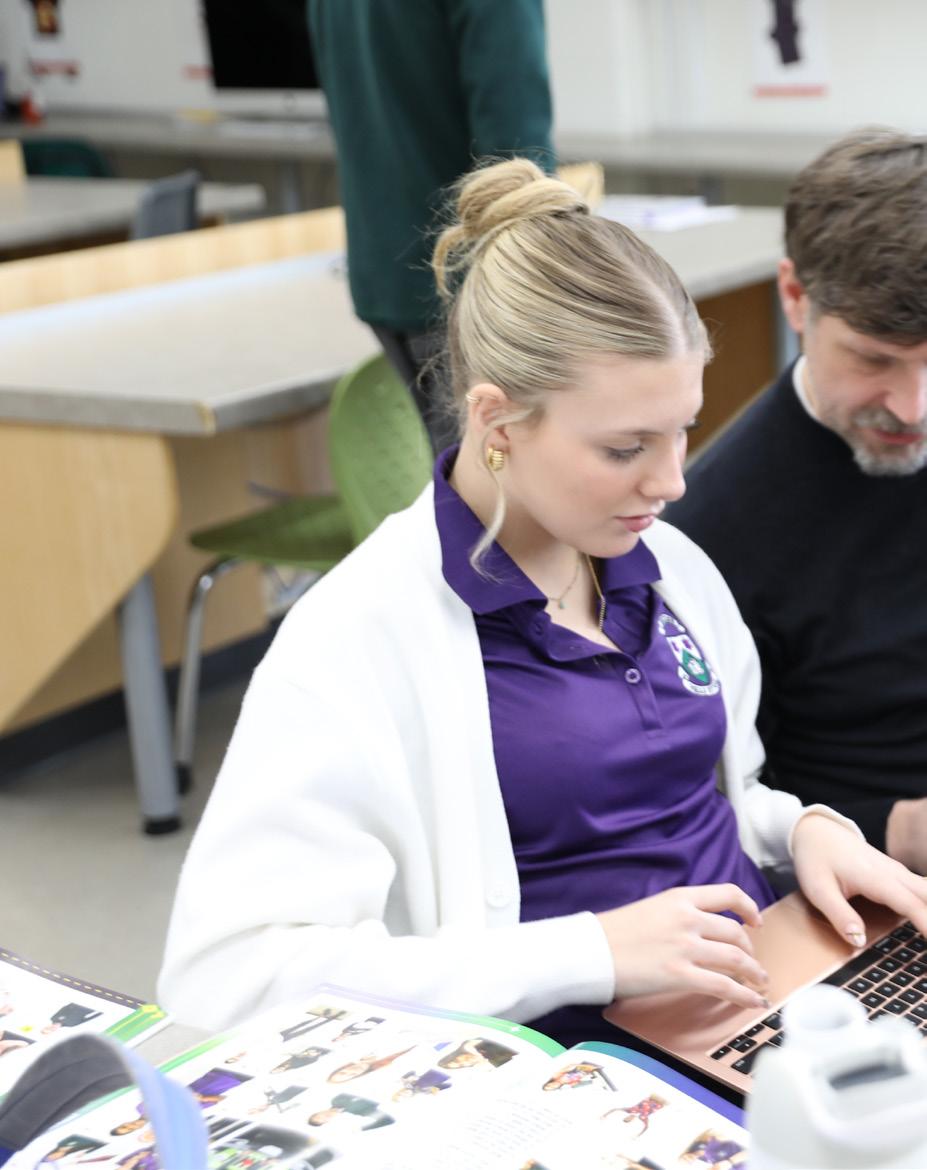
IT Services will have access to all user accounts, including email and will monitor user accounts randomly to ensure reliability, stability and accepted use of HSC’s resources. IT Services may close an account at any time due to an infraction to the agreed use, as approved by the Director of Technology Integration & Innovation and/or the School Principal.
STUDENT
As a responsible user of the school’s technology, I agree with the rules outlined above. I understand that I may lose my access privileges if I do not abide by the terms of this AUA.
PARENT/GUARDIAN
By signing this AUA on behalf of your child, you agree to provide authorization for teachers to set up accounts for students to provide access to online resources for educational purposes. Please note that parents/guardians are responsible for supervising their child’s access to the HSC account when it is used outside of school. You agree that you have read and your child will comply with the terms of accepted use and standards of behaviour listed above. I understand that my child is responsible for any hardware borrowed from the College, and my account will be charged the replacement amount in the event of loss or damage.
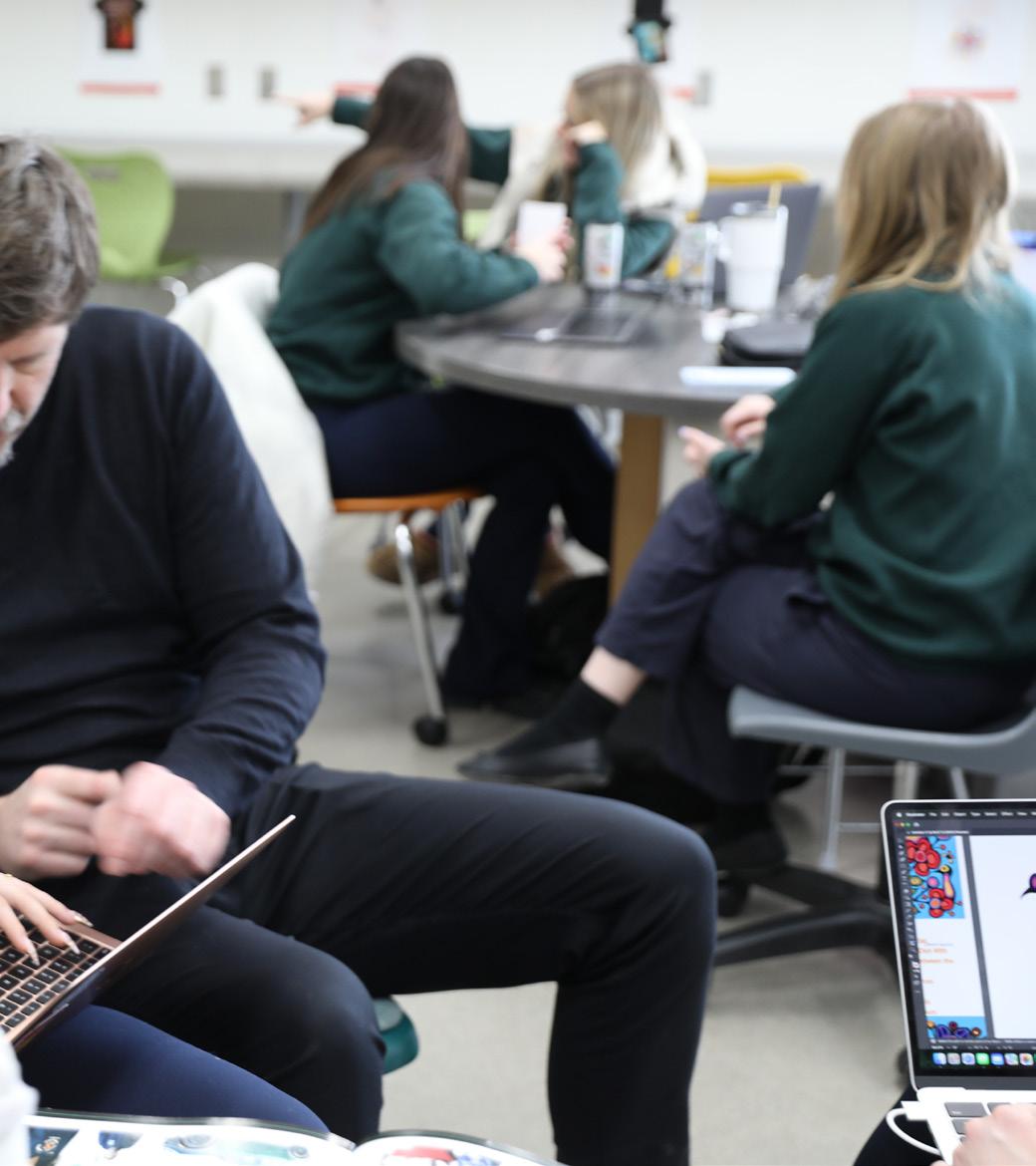

ATTENDANCE POLICY
ABSENCES
In the event that a student will not attend school, a parent or guardian must contact the Senior School Assistant at ext. 196, before 9:00 a.m.
The College assumes that when a student is absent from school in the morning, that student will not be returning to school for any co-curricular clubs, programs, competitions or varsity sports. If students are too ill to be in class, they should not be participating in co-curricular activities. The exception to this policy would occur if the morning absence is due to a medical or previously scheduled appointment.
EXTENDED ABSENCES
Absences due to non-medical, non-school-related functions must seek permission from the Grade Level Vice-Principal a minimum of two weeks in advance. The College does not encourage parents to take students out of school for extended periods. To ensure adequate academic support, students must complete the Extended Absence Form prior to leaving.
SIGN IN/OUT PROCEDURES
Senior School students who arrive late must sign in with the Senior School Assistant. Senior School students leaving campus for appointments during normal school hours must sign out with the Senior School Assistant. Students must have either:
1. an explanatory email communication by a parent/guardian; OR 2. verbal permission from a parent/guardian for the student to scan out (contact the Senior School Assistant at ext. 196).
Students who wish to leave for the day, must scan out and need written or verbal permission from a parent/guardian. Students who wish to sign out due to illness must see a College Nurse. If the College Nurse is not available, see the Senior School Assistant. A parent/guardian will be contacted before a student is permitted to leave school due to illness.
GRADE 11 AND 12 STUDENTS ONLY
Grade 11 students with strong academic standing may scan out during their spare period without a note from their parents as long as they ensure they are back on campus on time for their next required class and/or appointment.
Grade 12 students may scan themselves out of school on their spare periods and during the lunch hour. Grade 12 students with a period one spare are excused from being on campus at 8:40 a.m. They must arrive at school in time for their first academic time of the day and must scan in at the Senior School Office. On Mondays, students with a spare are expected to attend Tutorial Flex at 9:55 a.m.
For both Grade 11 and 12 students, if lateness is persistent, then this privilege will be removed.
ONLINE AND OUT-OF-TIMETABLE COURSES
A small number of courses run outside of a block in the timetable. Examples include the two online courses, Career Studies and Civics and Citizenship, as well as the Junior Teaching Assistant program, Cooperative Education and DesignWerx. Students in out-oftimetable courses are expected to login to myHSC at least twice per week: once when they will visit the course Bulletin Board to find out which tasks need completed that week and once when they will submit those tasks.
If a student does not submit the required tasks for the week, the teacher will follow up with a series of escalating communications, as follows:
» The teacher will email the student and the student’s tutorial leader;
» The student will be marked absent from class in the attendance system for that week and that absence will appear on the report card;
» The teacher will contact the students’ parent(s) or guardian(s) and request the student attend an upcoming academic flex time/extra help session with the teacher;
» The teacher will ask the Grade Level Vice-Principal to speak to the student;
» The student will be required to attend face-to-face flex time and/or detention with the teacher and will continue to do so until the teacher has determined that the student has completed all assigned work and spent sufficient time engaged in the course.
STUDENT ACADEMIC CONDUCT
ACADEMIC INTEGRITY POLICY
All academic dishonesty should be reported to the appropriate grade-level VP to review.
Academic honesty requires students to acknowledge the efforts, thoughts or ideas of others that have been used to complete a task. At all levels where research is required, appropriate acknowledgment and documentation methods are taught so that students can clearly distinguish their own work from that of others.
Academic dishonesty/plagiarism is the failure to acknowledge this distinction by submitting any work representing that student’s effort and thought that was entirely or in part produced by some other person or means, including professional scholars, other students, parents, purchased services and electronic reproduction. The use of direct quotation or indirect paraphrase without appropriate citation and copyright infringement is also included in this definition.
Sharing files or folders of work to be submitted between students without permission from the teacher is not permitted and can be considered academic dishonesty. Students are expected to keep their individual work confidential unless group work is assigned.
The academic integrity policy aims to set students up for success, allow students to learn from their mistakes, and ensure fairness between students in evaluations. The Senior School remains invested in our students' learning by providing educational sessions at the start of the year and integrating lessons into our curriculum that support and aid in the understanding of what academic integrity stands for.
THE PROCESS:
All academic dishonesty should be reported to the appropriate grade-level VP to review.
1. The teacher will notify the student’s tutorial leader and Grade Level Vice-Principal (GLVP) via email if they encounter a suspected case of plagiarism. This notification should only occur after the teacher has spoken privately with the student to gain insight and feedback from the student in question. For consistency across subjects, sections and disciplines, all cases must be referred to the GLVP. The student is given the opportunity to speak to their parent/guardian before the steps below take place.
2. The teacher will provide the GLVP with a copy of the plagiarized assignment, highlighting the areas of dishonesty from which the student plagiarized.
3. Once the facts have been established in collaboration with the subject teacher, the GLVP will determine the infraction's severity and administer consequences appropriate to the offence level.
4. Depending on the severity, the teacher or GLVP will communicate to the student, parent/guardian, and the TL outlining the consequences, next steps, and details about the infraction.
5. The final step is for the GLVP to meet with the student to discuss the matter.
ACCOUNTABILITY MEASURES:
1. In the case of a minor infraction, communication with the student’s family will be undertaken by the teacher involved, cc’d to the GLVP and the tutorial leader.
2. If the incident represents a clear major case of academic dishonesty, the teacher or the GLVP (depending on the circumstances) will communicate with the student’s parents/guardians, copying the TL, explaining the incident and outlining the consequences.
3. In each major case, the student will meet with the GLVP to discuss the consequences, details of what happened, what was unethical about the behaviour, and what they have learned from the process.
4. Should the same student be caught with repeated academic dishonesty, the situation will be managed as a “Major Infraction of Code of Conduct,” thus formally involving parents and imposing consequences.
ACADEMIC CONSEQUENCES:
1. First offence: Based on their professional judgement, the teacher can opt to give the student a redo assignment or complete a modified version of that assignment on the student's own merits to demonstrate to the teacher that they have grasped the learning expectations assessed via the particular assignment. The work will be awarded up to 50 per cent of the original assignment mark.
2. Second offence: The work will be assigned a penalty of up to 100 per cent of the mark, meaning the student can expect a mark of 0, without being allowed to re-do the work.
3. If there are further incidents of plagiarism, the student will receive an automatic zero (0), and progressive consequences will be put into place, which could result in an Academic Agreement for the student.
Please note, when assigning consequences, the Grade Level VicePrincipal will factor in a number of considerations. The goal is to assist students in developing academic integrity.
» The circumstances surrounding each case.
» The extent of the violation:
a. Inevitably, the actions that constitute specific offences of academic honesty (e.g., plagiarism, cheating) vary in terms of severity.
b. Some instances of academic dishonesty constitute only minor infractions while others represent the most extreme form of violation.
c. Penalties should correspond to the nature of the offence.
d. Penalties may be imposed singularly or in combination for any offence.
» The level of the student's academic experience.
» Whether or not the student admits guilt, accepts responsibility for their action, and is amenable to educative remedies.
» Prior/multiple incidents: If the offence is a second (or subsequent) one for the student and/or is in combination with another offence, then a more severe penalty should be considered.
POLICY ON THE TIMELY SUBMISSION OF WORK
The purpose of this policy is to cultivate a culture of responsibility in which students learn to manage their time and effort to facilitate their learning. It recognizes the importance of setting students up for success by facilitating the timely completion of work, acknowledges extenuating circumstances of individual students, emphasizes the importance of timely and detailed communication between parents, students and teachers, and allows teachers to exercise their professional judgement in choosing the course of action to set the student up for success.
Preventative Measures
There are several structures and practices in place to help facilitate the timely completion of work, as follows:
» Due dates for major assignments and dates for major tests are posted in the myHSC assignment center at least one week in advance.
» Success criteria for major assignments are posted in myHSC, whether in the form of a rubric, a marking scheme, a test outline, or a link to a myHSC topic page with more details. This ensures that students have a clear understanding of what is expected of them.
» When setting due dates, teachers consider the broader student experience, including the number of other major assessments happening in that grade level at the time, the amount of class time provided, the commitments of students to HSC-based extracurricular activities including the athletics schedule, and other major school life events at the time, including the postsecondary application process. Where appropriate and to the extent possible, teachers will allow students to play a part in negotiating reasonable timelines.
» Teachers and teaching assistants are available for academic support during academic flex time and after school; the schedule for this availability is published on myHSC.
» Larger/lengthier assignments, at all grades, are divided into sections and/or have progress checkpoints to ensure a wellmanaged plan is in place for timely assignment completion.
» Teachers may set the class expectation that all work-in-progress assignments are stored in the student’s course Google Drive folder, allowing the teacher to easily check in on their progress at any time.
Extensions
Depending on the circumstances, teachers may choose to extend the deadline or change the assignment details for the whole class. When the nature of an assessment is personalized, the teacher might opt to negotiate individualized checkpoints and due dates, in which case each student is accountable for what was negotiated. Also, a student with an Individual Learning Plan and/ or an English Language Learner may have an accommodation granting them an extension on some types of assignments, assuming they have followed the proper procedures laid out by the Learning Services team.
Otherwise, an extension is a formal request, made via email in advance of the due date, for a reason that is either unforeseeable or unavoidable.
Unforeseeable reasons might include sudden injury or illness, family emergencies, or an unexpected change in HSC’s athletic schedule. Unavoidable reasons might include specialist appointments booked well in advance, a school trip, or playing a key role in a major HSC event. Extensions will not be granted for combinations of things that ought to have been foreseeable and avoidable; students are expected to balance their time between their regular commitments of classes and extracurricular activities.
An extension on a course summative assignment would only be granted for the same reasons a student would be allowed to write a final examination on an alternate date; this is detailed in the Final Examinations section of the Academic Calendar.
Communication about Late Assignments
Sometimes, despite the preventative measures listed above, students do not meet their assignment deadlines. In such situations, the teacher’s priority is to ensure that the lateness is suitably communicated and documented such that the appropriate interventions can take place. The ultimate goal is to work collaboratively with the
student and parent to make a plan to get the assignment completed and submitted. The first step should always be for the teacher to communicate with the student to establish the reason the assignment is incomplete. If the reason is something unforeseen and unavoidable, the teacher may choose to grant a grace period. Otherwise, the teacher must choose one or more of the following consequences. In either case, the parent, tutorial leader, Grade Level Vice Principal, and, if applicable, Learning Services faculty should be notified at this time.
Consequences for Late Assignments
These consequences are not an adequate answer for students who frequently struggle to meet their academic commitments. As such, habitual lateness with coursework, across several subject areas, will result in the formal intervention process, which is described elsewhere in the academic calendar. Also, in all cases of late work, students who miss deadlines will see that reflected in the learning skills indicators on their report cards.
The teacher will use their professional judgement, work with the student, and act within these guidelines, to determine one or more consequences that will most benefit student learning on a case-by-case basis. Regardless of which consequence is chosen, the teacher’s intent is not to punish the student; the goal is always to get the student to complete and submit the work such that the teacher can meaningfully and equitably assess their achievement level.
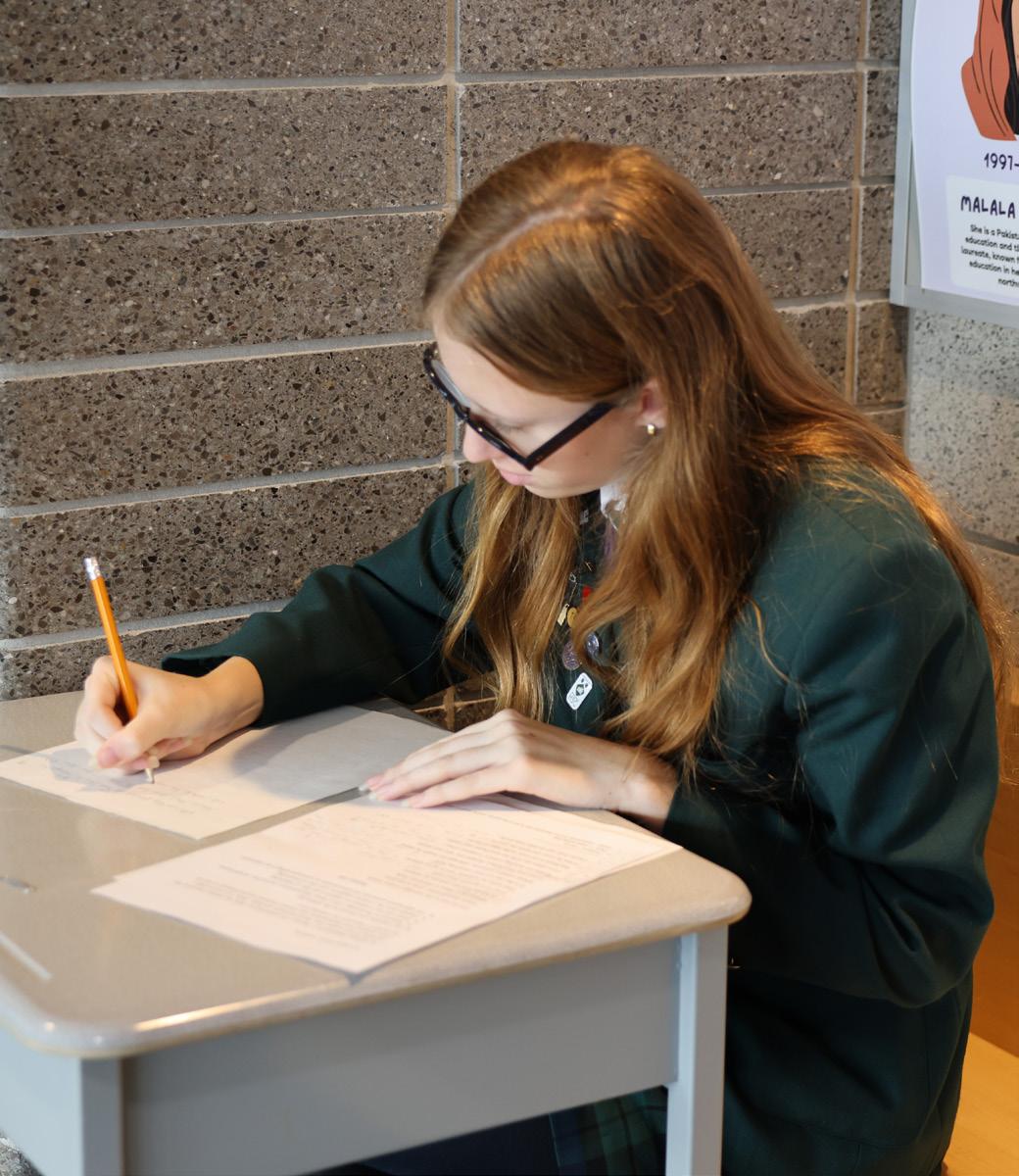
» Students may be required to attend academic detention on Mondays through Thursdays from 3:45 – 4:45 p.m. In most cases, this commitment would take priority over other school activities. A teacher would choose this option if they felt that the student simply needed structured time on task to complete the work.
» Students may be required to attend academic flex or after-school help sessions until the assignment has been completed. In most cases, this commitment would take priority over other school activities; a teacher would choose this option if they felt the student needed ongoing academic support to complete the work.
» Students can be penalized 5 per cent of the total marks available per school day up to a maximum of 20 per cent. Evaluated assignments will show both the mark before deduction and the recorded mark with the late penalty. A teacher would choose this option because the additional time a student takes to complete the assignment would prevent them from assessing the student’s knowledge and skills equitably using the same criteria as was applied to the other students in the class.
If, despite the teacher having followed the above processes, the assignment has still not been handed in, the teacher may choose to mark the partially completed assignment from the student’s Google Drive or assess the student’s relevant knowledge and skills based on their conversations with and observations of the student during class time. Understandably, the resulting mark may be considerably lower than had the assignment been completed. When such an assessment is not possible, the teacher may ultimately, in consultation with the Grade Level Vice Principal, grant a mark of zero on the assignment. In such cases, the student, parent/guardian and tutorial leader will be notified.
Missed Tests
For missed tests, students are required to contact the teacher as soon as possible and should be prepared to write the test (or a modified version of it) the day they return to school or as early as the teacher can otherwise arrange. It is important to note that the making up of such tests takes priority over other school activities.
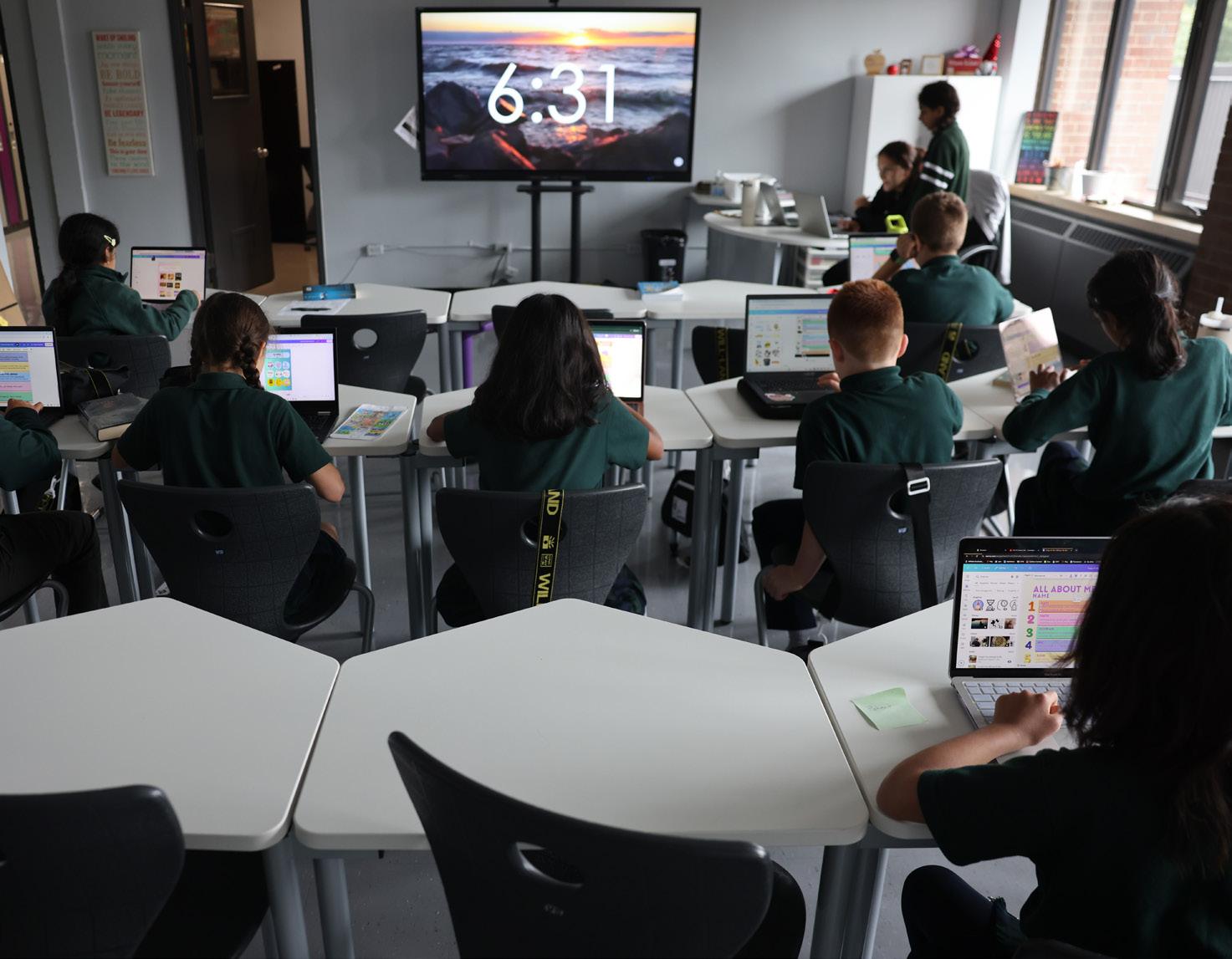
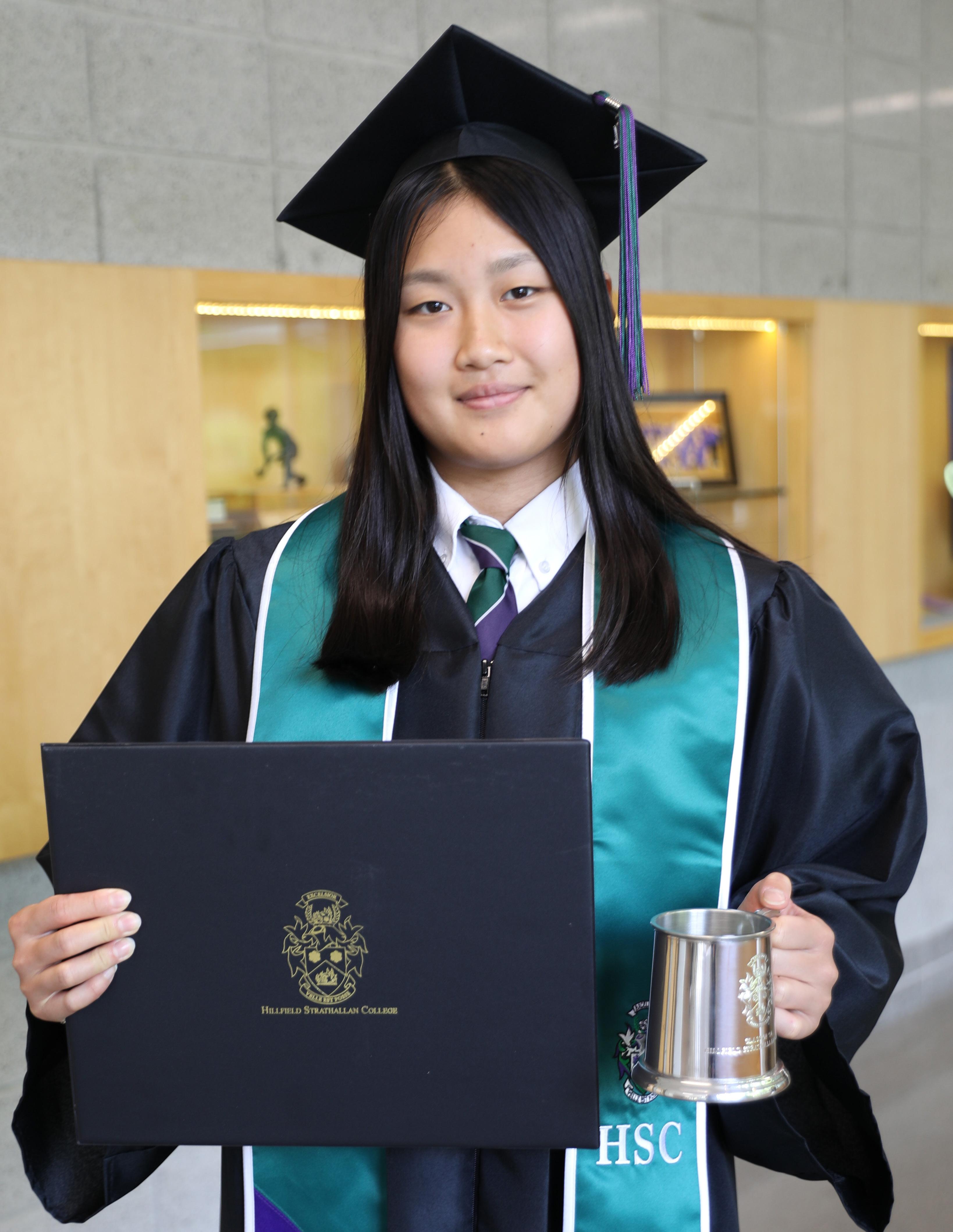
THE ONTARIO SECONDARY SCHOOL DIPLOMA
ONTARIO SECONDARY SCHOOL GRADUATION DIPLOMAS AND CERTIFICATES
In the province of Ontario, there are three different diplomas or certificates that secondary school students are capable of earning. The first two types are relevant only to those students who do not intend to study at the post-secondary level. For students who leave secondary school but have earned a minimum of 14 credits, as outlined in the Ontario Ministry of Education’s document Ontario Schools, Kindergarten to Grade 12: Policy and Program Requirements, 2016 (OS) an Ontario Secondary School Certificate (OSSC) is presented. For students who depart secondary school prior to earning their OSSC, a Certificate of Accomplishment is presented.
At Hillfield Strathallan College, the core of our educational mission is to prepare our students for post-secondary study. As such, the certificates listed above are not applicable to our students, as all are pursuing the Ontario Secondary School Diploma (OSSD). The OSSD is the most important requirement for university entrance and the details of this diploma are outlined below.
ONTARIO SECONDARY SCHOOL DIPLOMA REQUIREMENTS
The program of study is referred to as the Ontario Schools, Kindergarten to Grade 12: Policy and Program Requirements, 2016 (OS). In order to receive an Ontario Secondary School Diploma (OSSD), under the OS guidelines, the student must successfully complete a minimum of 30 credits from a variety of subject areas.
There are 18 compulsory and 12 elective credits that comprise this mix of 30 credits. In order to earn the OSSD, 6 of these credits must have been at the Grade 12 4U or 4M level. If a student has not met the OSSD requirements, they are required to remain in school until age 18.
CREDIT REQUIREMENTS
A credit is granted by a Principal on behalf of the Ministry of Education in recognition of the successful completion of a course which has a minimum of 110 hours of instructional time and has been developed, or approved, by the Ministry.
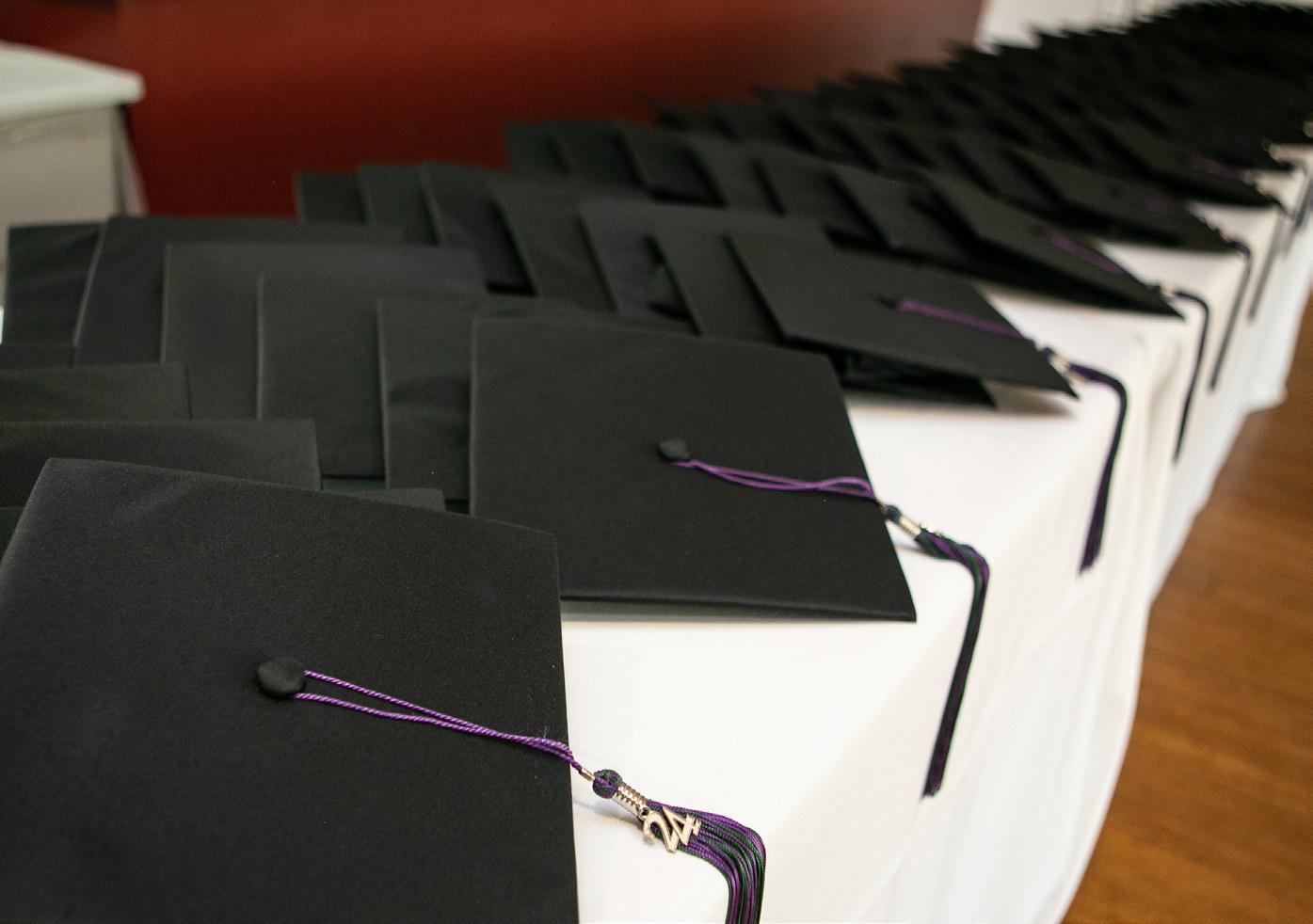
English (one credit in each grade level 9-12)
Mathematics (at least one credit in Grade 11 or 12)
Science 1 Canadian History (Grade 10 course taken in Grade 9 at HSC) 1 Canadian Geography (Grade 9 course taken in Grade 10 at HSC)
Arts 1 Health and Physical Education 1 Civics and Career Studies (1/2 credit each)
1
Additional credit in English, or French as a second language, or a Native language, or a classical or international language, or social sciences and the humanities, or Canadian and world studies, or guidance and career education, or cooperative education or American Sign Language as a Second Language
Additional credit in health and physical education, or the arts, or 1 business studies, or cooperative education, or French as a second language or American Sign Language as a Second Language
Additional credit in science (Grade 11 or 12), or technological education, or French as a second language, or computer studies, or cooperative education or American Sign Language as a Second Language
The successful completion of the Ontario Secondary School Literacy Test (OSSLT) is a graduation requirement. The literacy test evaluates students’ reading and writing skills based on curriculum expectations in language and communications developed by the end of Grade 9. At HSC, students normally complete the OSSLT during the spring of their Grade 10 year. Should an HSC student be unsuccessful at passing the OSSLT, they are expected to write the test again in a subsequent year (i.e., Grades 11 or 12). The overwhelming majority of HSC students successfully complete the OSSLT in their Grade 10 year. Students who did not receive a passing mark of 300/400 (75 per cent) on the OSSLT will be contacted by their guidance counsellor to discuss whether they should attempt the OSSLT again or seek out the Ontario Secondary School Literacy Course (OLC4O) from another provider. Hillfield Strathallan College does not offer the Ontario Secondary School Literacy Course.
COMMUNITY INVOLVEMENT REQUIREMENT & PROCEDURES
As part of their diploma requirements, students must complete a minimum of 40 hours of community involvement activities. Relative to our mission, students are encouraged to support our local community and to reach out to others in faraway places from the early grades. By the end of Grade 12, the majority of our students surpass the 40 hours of community service. We advise our students to commit to involvement in all four years of Senior School.
Involvement in the community encourages students to develop awareness and understanding of their civic responsibilities and often an understanding of their preferences for their future careers. Students either choose their own community service activities or they may participate in the activities initiated by the school through House activities, individual projects or peer endeavours. Students are responsible for keeping a record of their volunteer activities on a form which is posted on the Student Success Centre and for ensuring that this form is returned to the Senior School Assistant, so that volunteer hours can be logged with the school. For further information, please refer to: www.edu.gov.on.ca/communityservice
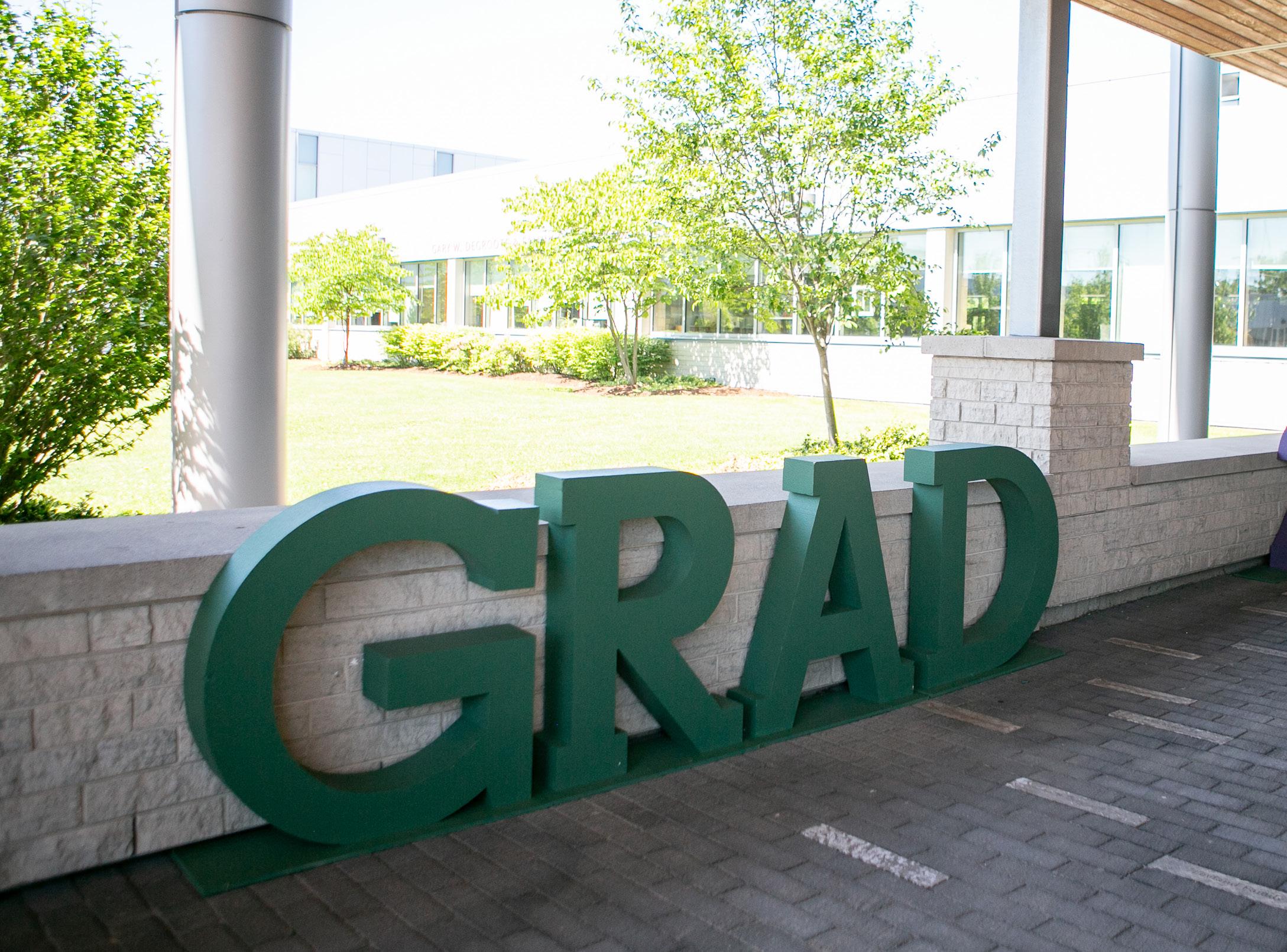
ONLINE LEARNING GRADUATION REQUIREMENT
All Ontario students must earn a minimum of two online learning credits as part of the requirements for an Ontario Secondary School Diploma. The Ministry of Education has stated three purposes behind this requirement, as follows:
» access a wider variety of courses no matter where they live or go to school, allowing them to shape their education based on their individual needs and goals;
» learn in engaging new ways, such as through hands-on, interactive features, simulations and collaboration with peers across the province;
» increase their digital fluency and gain transferable skills to support lifelong learning and employment opportunities.
Principals of inspected private schools, like HSC, may exempt all students of the school from the online learning requirement if in the Principal’s opinion, the online learning graduation requirement strongly conflicts with the educational mission of the school. In these cases, the transcript of each graduating student would read “Online Learning Graduation Requirement - Non-Applicable.” There is no penalty to students because of this; it will not affect the marks on the transcript, their Ontario Scholar status, or their post-secondary acceptance.
The Head of College and the Senior School Principal have elected to exempt all HSC students from the online learning graduation requirement for the following reasons:
We are more than confident in our students' digital fluency as reflected in their daily use of Our Bring Your Own Device (BYOD) program and Learning Management System (myHSC), as well as interactions with classrooms equipped with smart devices and their use of a wide variety of course specific technologies and software tools.
Our research tells us that the best online learning experiences combine both synchronous and asynchronous learning. HSC offers multiple high quality online learning opportunities: our online summer courses, our Career Studies and Civics and Citizenship courses, and our affiliation with the eLearning Consortium of Canada. We will continue to explore online learning opportunities that meet our standards, the needs of our students, and HSC’s Strategic Plan.
Course offerings in the Senior School are reevaluated annually with a mind to the strengths and interests of current students and faculty. Our students also have access to the courses provided by the eLearning Consortium of Canada – the preferred online course provider for CIS schools. We will continue to ensure that our students have access to a wide variety of courses.
HSC’s Strategic Plan emphasizes personal, authentic, and experiential learning, the reimagining of time and space, and local and global connection. Providing our students with new, engaging ways to learn is a basic expectation of our teaching faculty.

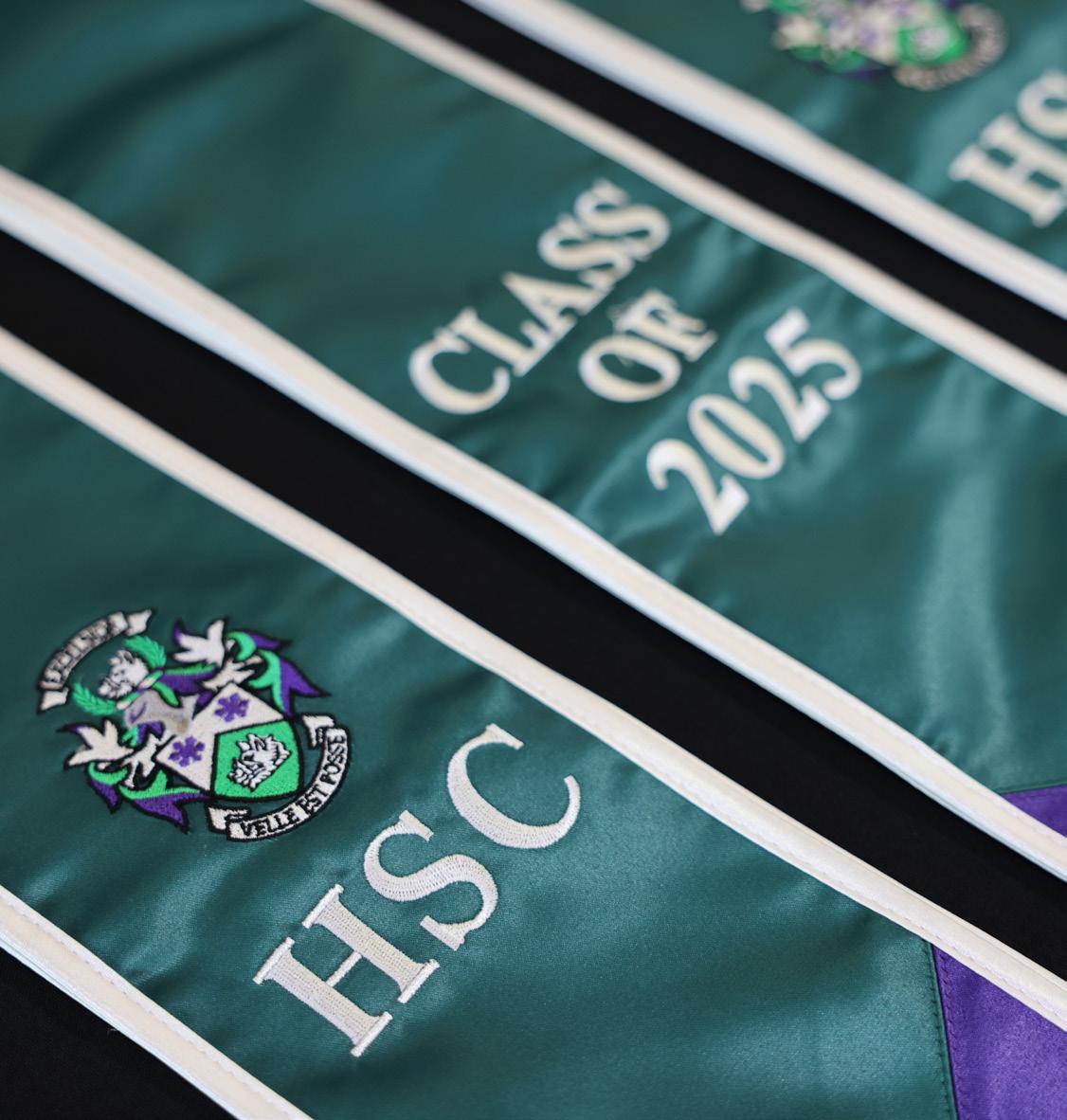
CURRICULUM/THE ACADEMIC PROGRAM
At HSC, we maintain a long tradition of teaching excellence and success in preparing young people to continue their formal studies at institutions of higher learning. Our community is a nurturing one which values the unique contributions of all and emphasizes service to others in graduating citizens who will contribute positively to the world around them.
HSC offers a comprehensive and challenging academic program, which aims to support all of its students. As a Ministry of Education and Training-inspected school, our courses follow the provincial curriculum expectations. As an independent school, we aim to meet and exceed these learning expectations.
Considerable care and attention are invested in the design of our academic courses. We recognize, and support, the fact that all learners are different and, as such, they have varying needs that must be taken into consideration when designing curriculum, delivering instruction, and assessing student learning.
The following areas are considered integral components in the program planning for HSC’s academic courses:
1. Ensuring that clearly differentiated approaches in both instructional practices and the assessment of student learning are in place to support, engage and evaluate a wide spectrum of learning styles and preferences.
2. Where possible, and when relevant, attention is drawn to environmental considerations and themes which impact the curriculum and learning outcomes in HSC’s academic courses.
3. In order to build relevance and focus student effort, ample opportunities are taken to discuss career possibilities related to the course content in each of the credits offered.
Enrichment is personalized and offered within the classroom. Selection into some academic enrichment programs is limited and based on criteria such as interviews with the course instructors, written applications, final marks from the previous academic year, and the HSC entrance and scholarship exam results.
In some cases, students and their families may feel that a fifth year of secondary school is prudent for the student to be fully prepared for further studies. Please contact the Senior School Principal to discuss this option.
CURRICULAR OPPORTUNITIES FOR HSC STUDENTS
EXPERIENTIAL LEARNING
COOPERATIVE
EDUCATION
This course provides students with opportunities to develop the workplace essential skills and work habits required for success in all types of workplaces. Students will explore occupations and careers of interest through participation in real workplace experiences. They will make plans for continued learning and work, collaborate with others to design learning experiences, and investigate the resources and support required to make a smooth transition to their postsecondary destination. Students will earn a GLN40C credit.
JUNIOR TEACHING ASSISTANT (JTA)
The JTA program is an opportunity for students to develop their leadership skills and demonstrate their passion for a specific subject area. In addition to earning the GPP3O Leadership and Peer Support credit, JTA students are placed in a classroom setting in the Senior School to work with the teacher and the students in a subject area that they enjoy. The JTA program application process is a multi-step process. Interested students should choose the GPP course during course selection, complete and submit an application and attend an interview. Students who would like to continue as a JTA for a second year follow a similar application process and earn a IDC4U credit.
E-LEARNING
ONLINE CIVICS & CAREERS
The OSSD requirements include two half-credit courses: Civics and Citizenship (CHV2O,) and Career Studies (GLC2O.) At HSC, these courses are offered online and are not built into the Senior School timetable. Most HSC students take CHV2O during their Grade 9 year and GLC2O during their Grade 10 year.
HSC ONLINE SUMMER SCHOOL
Our summer courses offer the flexibility of online courses with support and are taught by regular HSC faculty. Courses are delivered via myHSC. Teachers help keep students on track by posting daily announcements. Students collaborate using video-conferencing software, threaded discussion, and teamwork. Teachers are available daily (weekdays) via email and video-conferencing.
ELEARNING CONSORTIUM OF CANADA (ELCC)
The ELCC is the only provider of virtual courses designed for independent and private schools in Canada. It uses a learning model that combines synchronous and asynchronous components, in which students collaborate with students and teachers from other independent schools while working in an online environment. Students interested in learning more about this opportunity should contact their guidance counsellor for information about availability. To learn more about the ELCC, please visit www.elcc.com.
The AP program operates through the College Board in the United States. This is the same group who developed and administers the PSAT and SAT testing. The full AP Program consists of 36 postsecondary-level courses and exams. Students report that they enjoy the challenges of the AP Program; high school faculty find that AP courses greatly enhance students’ confidence and academic interest; and university faculty find that these students are well prepared for postsecondary academic work. AP courses are offered in more than 20,000 secondary schools internationally and in every province in Canada.
Depending on the degree of success obtained by students in their AP courses (as determined by their score on a three-hour examination sat in May) many international universities and most universities throughout Canada will offer students either advanced placement or grant them a credit equivalent to a first-year course at their institution. That said, each university has its own policy regarding the acceptance of AP credits and students should view the AP website for additional information: www.collegeboard.com/ap. A standardized test in each subject is administered worldwide in the home school during the first and second weeks in May. Results of this test are coded on a 5-point scale and are defined as follows: 5 – Extremely Well Qualified, 4 - Well Qualified, 3 - Qualified, 2 - Possibly Qualified and 1 - No Recommendation. Results are published to the students and the school in July.
The AP program at HSC began with one course in 2002 and has now grown to eight courses. New courses are considered annually based on faculty and student interest and potential. HSC AP courses are matched with provincial curriculum courses at the 4U level and students are awarded an Ontario credit upon successful completion of the course. Evaluations for the AP and credit courses are considered separately according to their own set of criteria. Many HSC graduates who have taken AP courses recommend the enrichment AP courses as they provide a solid preparation for workload and intellectual study at the university level.
Students are also offered the opportunity to challenge AP exams of their choice, whether or not the course is offered at HSC. For more information about the AP College Board, please visit www.collegeboard.com/ap, a comprehensive link to complete the details about AP.
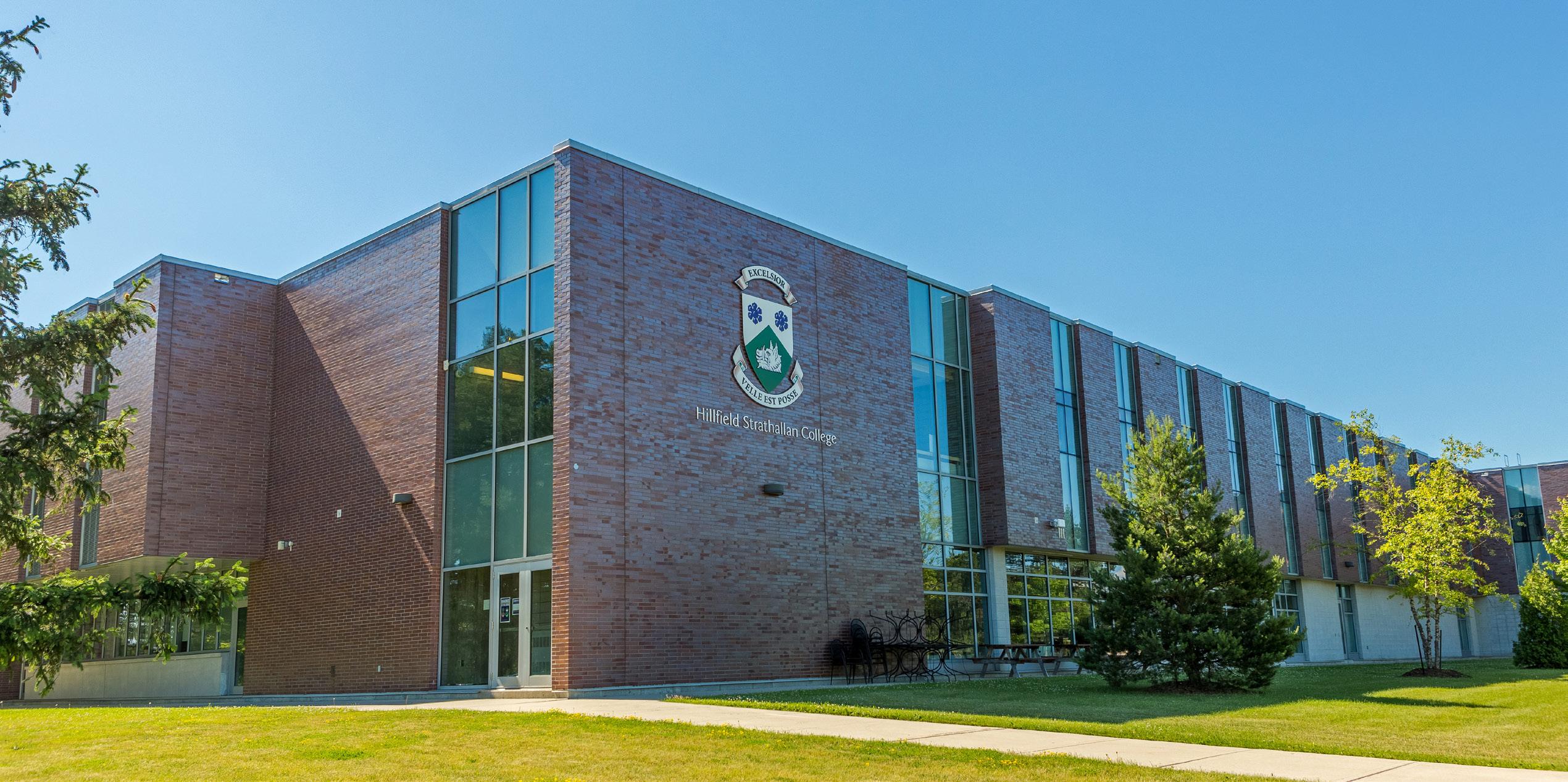
ASSESSMENT, EVALUATION & REPORTING
ASSESSMENT OF STUDENT ACHIEVEMENT
The criteria for how a student’s learning is assessed, evaluated and reported are governed by the Ministry of Education policy document entitled Growing Success: Assessment, Evaluation, and Reporting in Ontario Schools; First Edition, Covering Grades 1 to 12, 2010.
Assessment is the process of gathering information that accurately reflects how well a student is achieving the curriculum expectations in a subject or course. The primary purpose of assessment is to improve student learning. Assessment for the purpose of improving student learning is seen as both “assessment for learning” and “assessment as learning”. As part of assessment for learning, teachers provide students with descriptive feedback and coaching for improvement. Teachers engage in assessment as learning by helping all students develop their capacity to be independent, self-directed learners who are able to set goals, monitor their own progress, determine next steps and reflect on their thinking and learning.
Teachers obtain assessment information through a variety of means, which may include formal and informal observations, learning conversations and discussions, socratic questioning, conferences, homework, tasks done in groups, demonstrations, projects, portfolios, developmental continua, performances, peer and self-assessments, self-reflections, essays and tests. For Grades 9 to 12, assessment is based on evidence of student achievement of the provincial curriculum expectations. Teachers will ensure that a students’ demonstration of their achievement is considered within the appropriate categories.
The use of assessment to improve student learning and to help students become independent learners requires teachers and students to acknowledge and enact a fundamental shift in how they perceive their roles in the learning process. In a traditional assessment paradigm, the teacher is perceived as the active agent in the process, determining goals and criteria for successful achievement, delivering instruction and evaluating student achievement at the end of a period of learning. The use of assessment for the purpose of improving learning and helping students become independent learners requires a culture in which students and teachers learn together in a collaborative relationship, each playing an active role in setting learning goals, developing success criteria, giving and receiving feedback, monitoring progress and adjusting learning strategies. The teacher acts as a “lead learner,” providing support while gradually releasing more and more responsibility to the student as the student develops the knowledge and skills needed to become an independent learner.
Quality assessment practices that enhance learning and build understanding occur when assessment is:
» fair, transparent, and equitable for all students;
» supportive to all students, including those with special education needs;
» carefully planned to relate to the curriculum expectations and learning goals and, as much as possible, to the interests, learning styles and preferences, needs, and experiences of all students;
» communicated clearly to students and parents/ guardians at the beginning of the school year or course and at other appropriate points throughout the school year or course;
» ongoing, varied in nature, and administered over a period of time to provide multiple opportunities for students to demonstrate the full range of their learning;
» providing ongoing descriptive feedback that is clear, specific, meaningful and timely to support improved learning and achievement;
» developing students’ self-assessment skills to enable them to assess their own learning, set specific goals and plan next steps for their learning.

EVALUATION OF STUDENT ACHIEVEMENT
Evaluation refers to the process of judging the quality of student learning on the basis of established performance standards and assigning a value to represent that quality. Evaluation accurately summarizes and communicates to parents/guardians, other teachers, institutions of further education and students themselves, what students know and can do with respect to the overall curriculum expectations. Evaluation is based on assessment of learning that provides evidence of student achievement at strategic times throughout the grade/course. All curriculum expectations must be accounted for in instruction and assessment, but evaluation focuses on students’ achievement of the overall expectations. A student’s achievement of the overall expectations is evaluated on the basis of their achievement of related specific expectations. The overall expectations are broad in nature, and the specific expectations define the particular content or scope of the knowledge and skills referred to in the overall expectations. Teachers will use their professional judgement to determine which specific expectations should be used to evaluate achievement of the overall expectations, and which ones will be accounted for instruction and assessment but not necessarily evaluated.
Ontario, like a number of other jurisdictions, has moved from normreferenced to criterion-referenced assessment and evaluation. This means that teachers assess and evaluate student work with reference to established criteria for four levels of achievement that are standard across the province, rather than by comparison with work done by other students, or through the ranking of student performance, or with reference to performance standards developed by individual teachers for their own classrooms. In the past, assessment and evaluation performance standards varied from teacher to teacher and from school to school, and this led to results that were not always fair for all students.
Criterion-referenced assessment and evaluation ensure that the assessment and evaluation of student learning in schools across the province are based on the application of the same set of well-defined performance standards. The goal of using a criterion-based approach is to make the assessment and evaluation of student achievement as fair, reliable and transparent as possible.
Evidence of student achievement for evaluation is collected over time from three different sources: observations, conversations and student products. By using multiple sources of evidence, the reliability and validity of the evaluation of student learning increases. “Student products” may be in the form of tests or exams and/or assignments for evaluation. Assignments for evaluation include rich performance tasks, demonstrations, projects and/or essays.
To ensure equity for all students, assignments for evaluation and tests or exams are to be completed, whenever possible, under the supervision of a teacher. Assignments for evaluation must not include ongoing homework that students do in order to consolidate their knowledge and skills or to prepare for the next class. Assignments for evaluation may involve group projects as long as each student’s work within the group project is evaluated independently and assigned an individual mark, as opposed to a common group mark. The evaluation of student learning is the responsibility of the teacher and must not include the judgement of the student or of the student’s peers.
CALCULATION OF FINAL GRADES
Teachers take various considerations into account before making a decision about the grade to be entered on the report card. The teacher considers all evidence collected through observations, conversations and student products (tests/exams, assignments for evaluation). The teacher then takes into account the evidence for tests/exams and assignments for evaluation that the student has completed, the number of tests/exams or assignments for evaluation that were not completed and the evidence of achievement that is available for each overall expectation for a subject in a particular grade or course. In addition, as part of this process teachers may weigh some evidence greater than other evidence. For example, some performance tasks are richer, and reveal more about a student’s skills and knowledge than others. Teachers weigh all evidence of student achievement in light of these considerations and use their professional judgement to determine the student’s report card grade. The grade represents a student’s achievement of overall curriculum expectations, as demonstrated to that point in time. Determining a report card grade involves teachers’ professional judgement and interpretation of evidence and should reflect the student’s most consistent level of achievement, with special consideration being given to more recent evidence. A student's final report card marks are calculated by weighting work completed throughout the semester at 70 per cent and work completed as a course summative assignment or a final examination at 30 per cent.
FINAL EXAMINATIONS
Many courses in the Senior School have moved away from a formal, written final examination and towards summative projects that are more authentic for some subject areas. However, there are benefits to experiencing rigorous, cumulative final exams during high school. The process of reviewing for and sitting an exam often forces students to consolidate their learning, which supports long-term retention. Many post-secondary institutions and even some professions rely on examinations to evaluate learning. For these reasons, we believe that students need to practice and develop the skills inherent in formal exam writing in order to be best prepared for their post-secondary education. Our alumni frequently report to us that the experience of writing a formal, common examination in a gym was instrumental in preparing them for that same experience during their post-secondary years.
The dates for the two examination periods can be found in the Academic Year section of this document. The specific exam schedule will be communicated via myHSC before the December break for Semester 1 courses and before the Victoria Day long weekend for Semester 2 courses. The last day of each exam period is reserved for exam conflicts. An exam conflict is defined as two exams scheduled at once, three consecutive exam sittings, or an exam that cannot be written at its regular time due to an accommodation in the student’s ILP. Students with a scheduled exam conflict should contact the VicePrincipal of Academic Administration, who will let them know which exam will be written on the conflict day.
The following are three reasons we allow students to write an exam on an alternate date:
» there is a documented medical reason the student cannot write at the scheduled time; or
» there is a documented extreme sympathetic reason (such as a death in the family) that the student cannot write at the scheduled time; or
» the Vice-Principal of Academic Administration and the Grade Level Vice-Principal have, in advance, approved an alternate exam date so that the student can take advantage of a unique, rare, high-level opportunity that cannot itself be rescheduled. An example of this would be a student who is competing in OFSAA track and field, which often occurs during the June examination period. Students appealing to the Vice-Principals for an alternate exam date for such an opportunity need to notify them as soon as they become aware of the opportunity and before they make any travel plans.
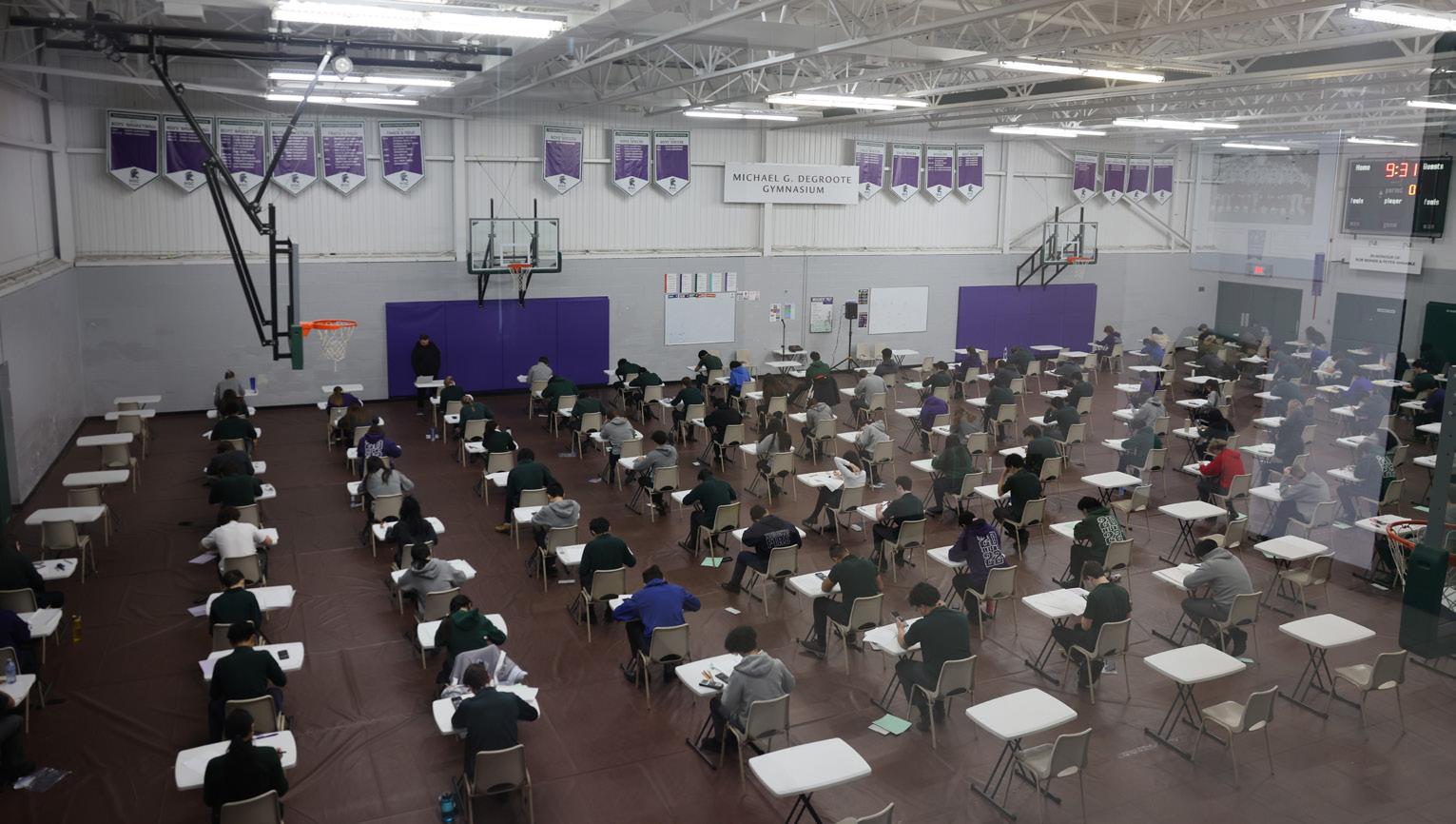
REPORTING STUDENT ACHIEVEMENT
In the Senior School at HSC, two report cards are issued each semester. In Semester 1, the mid-semester report card is issued in November and the final report card is issued in February. In Semester 2, the two reports are released in April and June.
In addition to a mark representing the student’s achievement as described above, each report also includes the total number of absences and the number of times the student was late to class. The absences refer to missed classes rather than missed days and include excused, unexcused and even school-related absences, such as school trips. It is therefore important for parents/ guardians to refer to myHSC for a more detailed breakdown.
Learning skills are tracked and reported separately from marks and, to the extent possible, are not explicitly factored into the calculation of a grade, except when required by the curriculum of a particular course. The learning skills that are tracked and assessed are Responsibility, Organization, Independent Work, Collaboration, Initiative and Selfregulation. Each learning skill is reported on with one of the following indicators: E (Excellent), G (Good), S (Satisfactory), N (Needs Improvement), or I (Insufficient Information).
A copy of the February and June report cards are filed in the student's OSR.
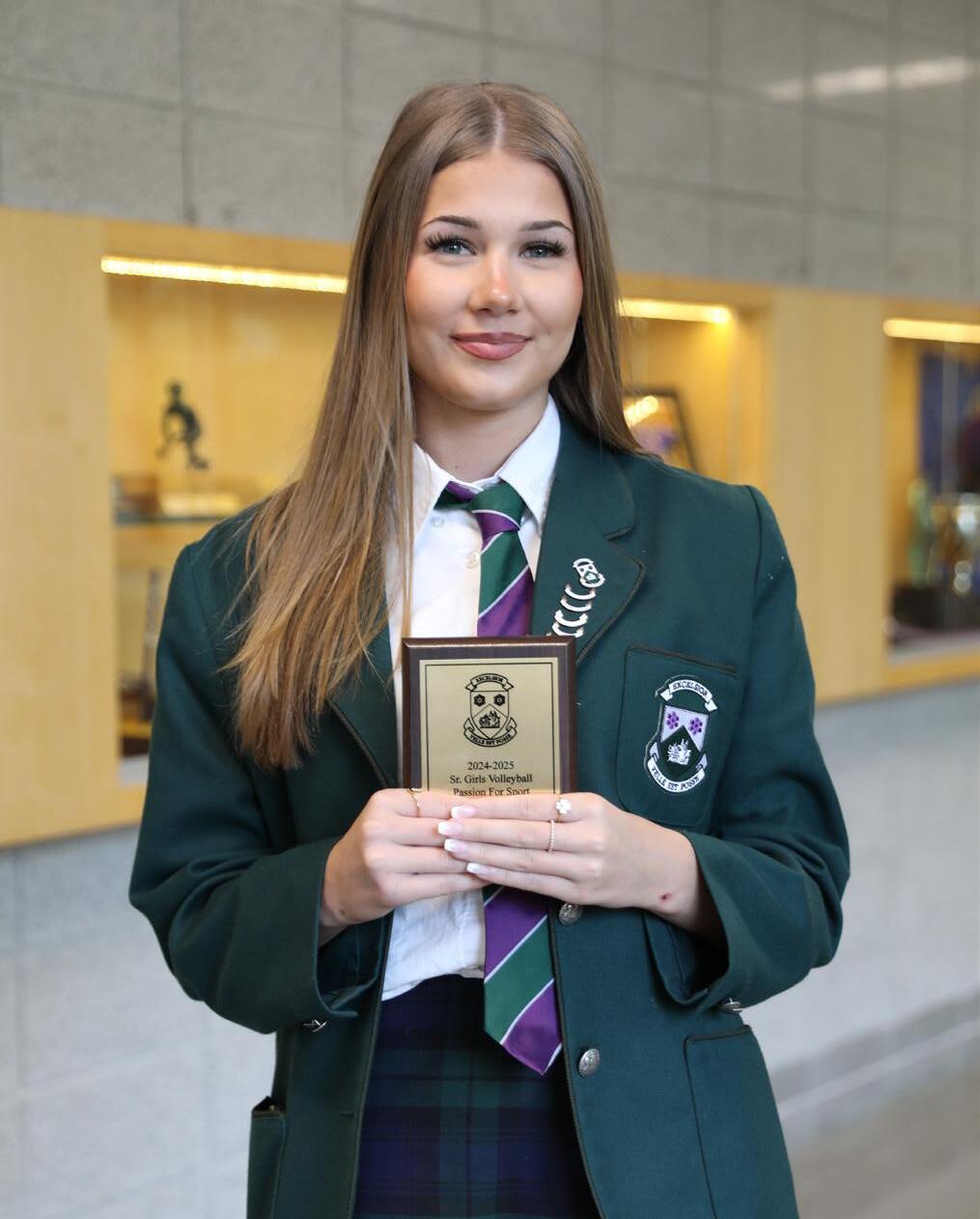
DISCLOSURE
The Ontario Student Transcript (OST) was developed in 1983 to provide an official and consistent record of the Ontario secondary school credit courses successfully completed by a student. The OST is kept in the student’s Ontario Student Record (OSR) which is maintained in the School Administration Office. All withdrawals after the course drop date from any Grade 11 or 12 course must be recorded on the OST. According to the Ministry of Education, the official course withdrawal date is always five (5) school days following the receipt of the second official report card. The actual course withdrawal date is listed in the Academic Year chart at the beginning of this document, and posted on the Senior School myHSC calendar for student and parent/guardian reference. As well, any repeat of a course must also be recorded on the OST and the credit awarded to the course attempt with the highest grade upon completion.
The OST will include the following:
» all Grade 9 and 10 courses successfully completed by the student, with percentage grades obtained and credits earned;
» all Grade 11 and 12 courses completed successfully or attempted by the student, with percentage grades obtained and credits earned;
» all equivalent credits granted through the Prior Learning Assessment and Recognition (PLAR) equivalency process under Ontario Schools (OS);
» all Grade 10 courses for which the student successfully challenged for credit through the PLAR challenge process, with percentage grades obtained and credits earned;
» all Grade 11 and 12 courses for which the student successfully or unsuccessfully challenged for credit through the PLAR challenge process, with percentage grades obtained and credits earned;
» identification of compulsory credits, including credits that are substitutions for compulsory credits identified by the Ministry as diploma requirements;
» confirmation that the student has completed the 40 hours of community involvement;
» confirmation that the student has successfully completed the Ontario Secondary School Literacy Test (OSSLT);
» confirmation that the principal has exempted all HSC students from the online learning graduation requirement by indicating “Online Learning Graduation Requirement - NonApplicable”.
Since September 1, 1999, the OST has also had to include a record of the achievement of exceptional students who have alternative learning expectations in an individualized, non-credit program. A full policy document, describing the Ontario Student Transcript, can be found at: www.edu.gov.on.ca/eng/general/elemsec/ost/ost.html
PRIOR LEARNING AND RECOGNITION (PLAR)
PLAR is the formal evaluation and credit-granting process whereby students may obtain credits for prior learning. Prior learning includes the knowledge and skills that students have acquired, in both formal and informal ways, outside secondary school. Students may have their knowledge and skills evaluated against the expectations outlined in provincial curriculum policy documents in order to earn credits towards the secondary school diploma. The PLAR process involves two components: “challenge” and “equivalency”.
The “challenge” process is the process whereby students’ prior learning is assessed for the purpose of granting credit for a Grade 10, 11 or 12 course developed from a provincial curriculum policy document published in 1999 or later. HSC does not currently offer challenge credits. The “equivalency” process is the process of assessing credentials from other jurisdictions. Students who are eligible for equivalency credits are those who transfer to HSC from a school outside Ontario. Equivalency credits are thus granted for placement only.
SUBSTITUTIONS FOR COMPULSORY COURSES
In order to allow flexibility in designing a student’s program and to ensure that all students can qualify for the OSSD, substitutions may be made for a limited number of compulsory credits. In consultation with the Senior School Principal, students may replace up to three credits with courses selected from those remaining courses offered by the school that meet the requirements for compulsory credits. Substitutions may only be made to promote and enhance student learning, or to meet special needs and interests. Each substitution will be noted in the student’s Ontario Student Record.
PRIOR LEARNING CREDITS
Students who have earned high school credits outside Ontario, or in a non-inspected private school in Ontario, may be granted equivalency credits for their prior learning experience. Students are granted equivalency credits after they have completed a full semester and must provide documentation including an official transcript from their previous high school.
The Director of Student Success will determine as equitably as possible the total credit equivalency of the student’s previous learning, and the number of compulsory and optional credits still to be earned, as well as other diploma requirements that the student must satisfy in order to qualify for the secondary school diploma.
EXTERNAL
A student who has successfully completed the practical and theoretical requirements for Grades VII and VIII of the Royal Conservatory of Music certificates may count a maximum of two document credits towards the OSSD in addition to any other music credits earned in the school. Please submit these documents to the Director of Student Success so that the appropriate notation can be made on the Ontario Student Transcript (OST).
ONTARIO STUDENT RECORD
An information file called the Ontario Student Record (OSR) is maintained by Hillfield Strathallan College for each student enrolled in the school. This file contains final report cards, an up-to-date transcript and other material pertinent to the student's academic achievements. Upon graduation from secondary school, Hillfield Strathallan College is responsible for the retention, storage and eventual destruction of information contained in a student’s OSR. Under Ministry of Education policy, the College will use the following timeline to manage the contents of the OSRs of students who have graduated (or ‘retired’) from secondary school:
One year post-retirement: Regulations under the freedom of information legislation require personal information that has been used by an institution be retained by the institution for at least one year after use, unless the individual to whom the information relates consents in writing to its earlier disposal. Therefore, any personal information placed in an OSR should be retained by HSC for at least one year after use, unless the Principal receives written consent to its earlier disposal.
The following components of the OSR will be retained for five years after a student retires from school:
1. report cards;
2. the documentation file, where applicable; and 3. additional information that is identified by Hillfield Strathallan College as appropriate for retention.
The following components of the OSR will be retained for fifty-five years after a student retires from school:
1. the OSR folder;
2. the Ontario Student Transcript (OST); and 3. the office index card (available online).
The destruction of all or any part of the OSR when its retention is no longer required under the Ministry of Education’s OSR Guidelines will be affected under conditions that ensure the complete and confidential disposal of the record.
A full policy document, describing the Ontario Student Record, can be found at: www.edu.gov.on.ca/eng/document/curricul/osr/osr.html
A parent/guardian request to review the OSR (with or without the student in attendance) may be made to the Senior School Principal.
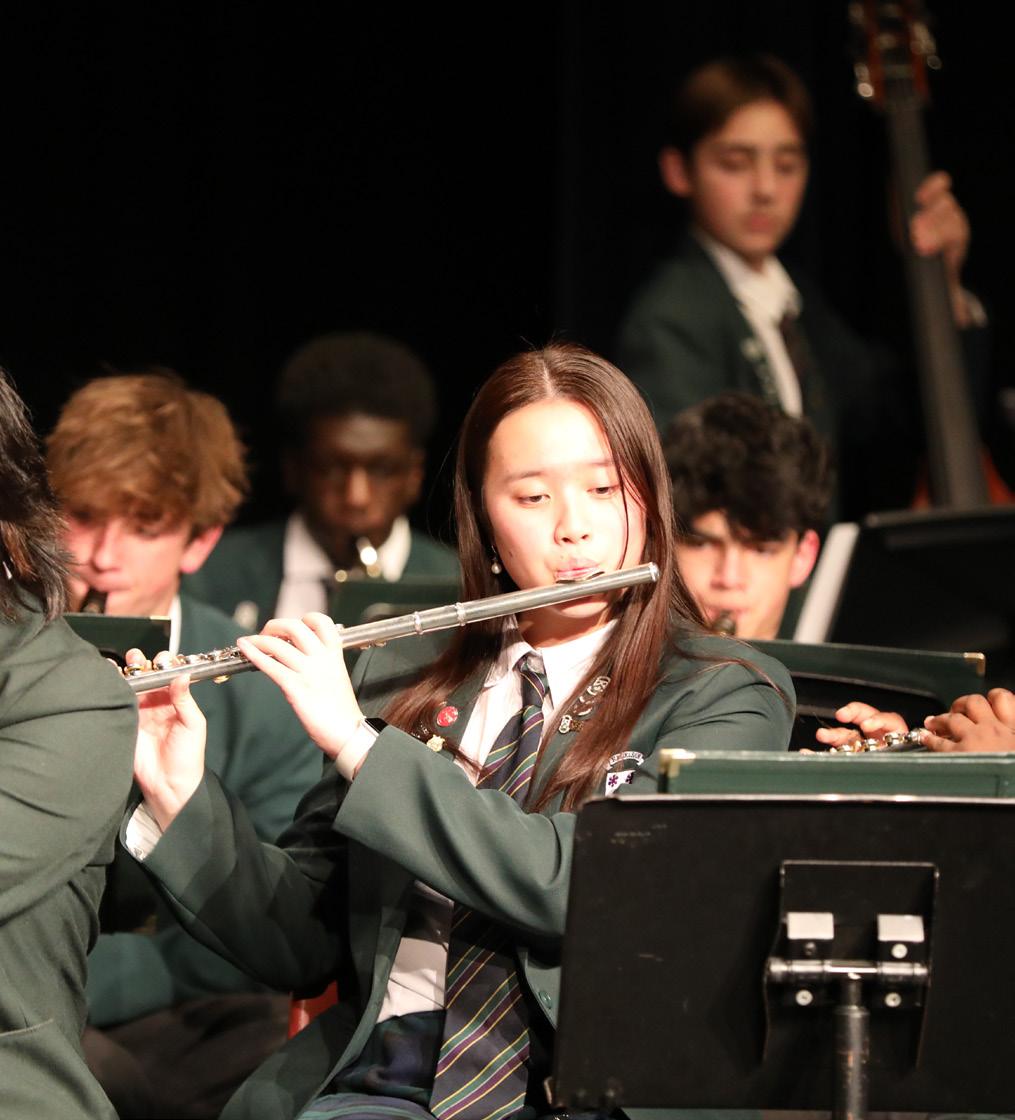
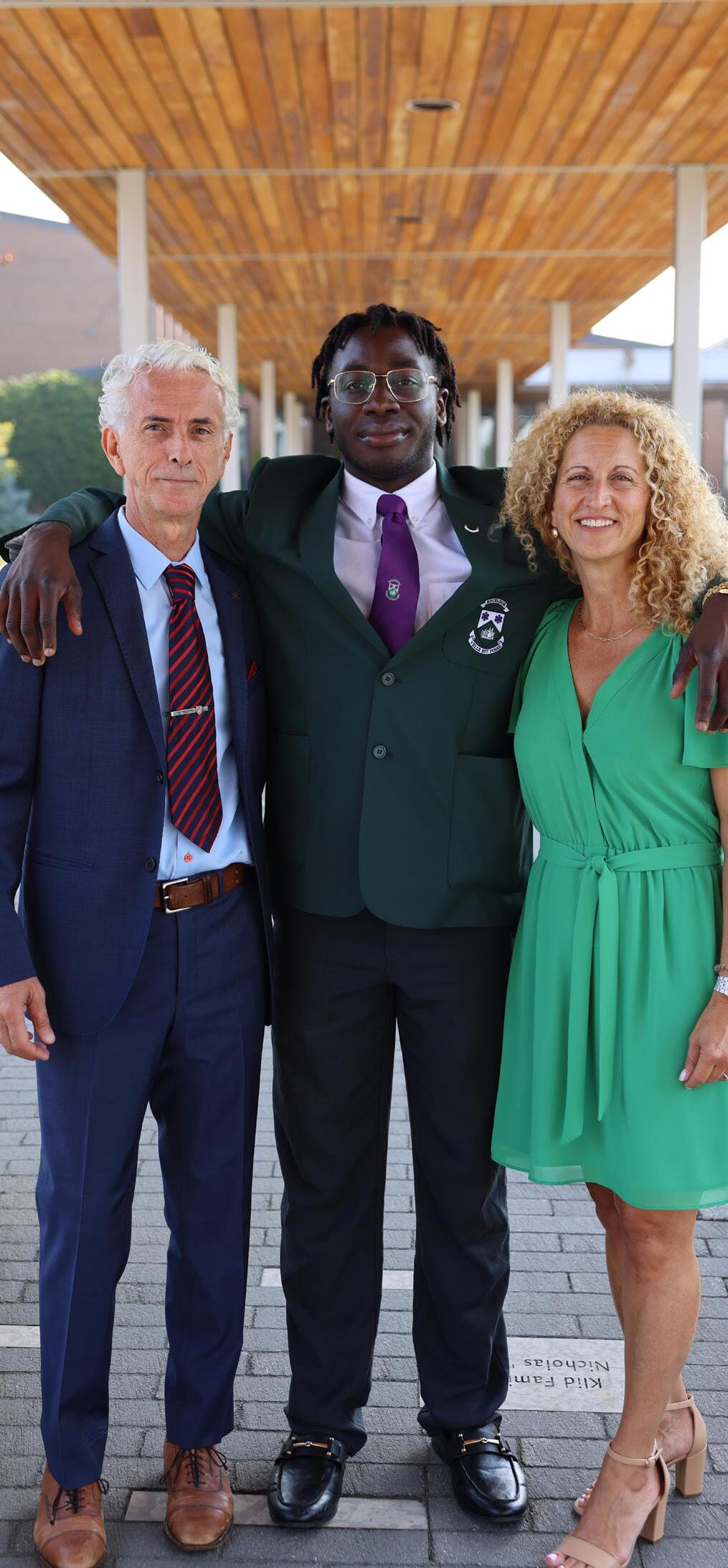
SUPPORTS AND RESOURCES
ACADEMIC SUPPORTS
If a student is encountering some academic challenges, HSC offers a variety of supports through the classroom teacher, their Tutorial Leader and the Student Success Centre (SSC) including:
» extra help with subject teacher
» support from Tutorial Leader
» extra help during academic flex time and after school in the SSC with teaching assistants (with a range of subject expertise)
» peer tutors
When a student is experiencing academic difficulty in one or more of their courses, a comprehensive intervention plan is developed and implemented.
THE INTERVENTION PROCESS FOR STUDENTS AT RISK
At HSC, a student at risk is defined as, “A student who is brought to the intervention team after a faculty member or administrator has filled out the Noticing a Student form for experiencing academic, behavioural, social, and/or emotional challenges”.
There are escalating stages of intervention for students at risk. The lowest level of intervention involves only the classroom teacher and the student. The next level adds the involvement of the parent(s) or guardian(s), Tutorial Leader, and Learning Service Specialist (if needed.) The third level brings in the Guidance Counsellor and the Grade Level Vice-Principal. Finally, an intervention plan is developed and monitored weekly by the Intervention Team. The Intervention Team is made up of the Principal, Grade Level Vice-Principals, Guidance Counsellors, Learning Service Specialists, and Health Services staff including the College Nurse and Social Worker. Intervention plans may include an academic plan, support from the Social Worker, Health Services, or Learning Services, academic and/or behavioural agreements, and academic holds or withdrawal of services.
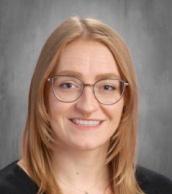
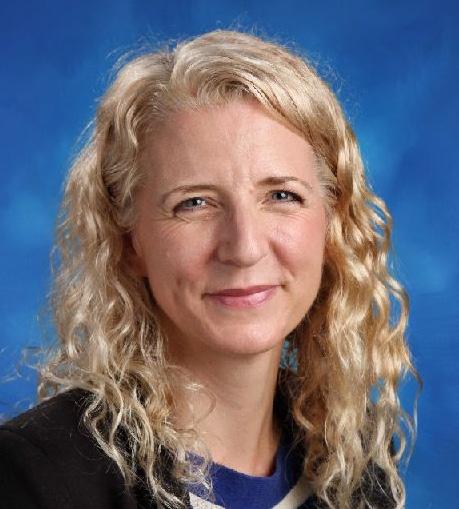
Jessica Harding Learning Services Specialist jessica.harding@hsc.on.ca
Ext. 183
Tracy Noon
Learning Service Specialist
tracy.noon@hsc.on.ca
Ext. 283
In recognition that all learners are unique and have their own set of learning strengths and challenges, HSC offers a Learning Services program to help students leverage their strengths, address their weaknesses and self-advocate to become more independent learners. The program strives to further develop a students’ understanding of their learning preferences, helps to improve learning strategies and executive function skills, and strengthens and reinforces their academic growth.
Students who require accommodations or provisions, as recommended by an psychoeducational assessment and/ or registered professional, are strongly encouraged to submit documentation to the Learning Services Specialists for consideration. This assists the College in supporting students and allows for the development, and ongoing maintenance of individual learning profiles. It is in the students’ best interests that all documentation and assessments are kept current, especially after Grade 10, in preparation for post-secondary studies. It is important to note that, while HSC is able to enact various accommodations for identified students, the College does not modify or remove academic program requirements based on special needs
Providing accommodations to support the learning needs of the identified students in each course, as per the mandates in that particular student’s Individual Learning Plan (ILP), is a fundamental consideration in program planning. The specific types of accommodations that a student can expect to have access to at HSC may vary based on the nature of the student’s diagnosed learning challenges and the individual needs of that student. In consultation with the student, their parents/guardians and any external medical professionals or paraprofessionals, the College reserves the right to deny access to any recommended accommodation that falls outside the scope of HSC’s announced academic program and/or any accommodations that would present undue hardship to the College to implement. Nonetheless, common assessment accommodations at HSC may include: test away (alternative testing space), extra time (1.5x), computer use, assistive technology, and question clarification.
SUPPORT FOR DIVERSITY, EQUITY & INCLUSION

Eric Bailey International Student Specialist eric.bailey@hsc.on.ca ext. 124
English Language Learners (ELL) receive ongoing support inside and outside the classroom. They are granted additional time to complete assessments, such as tests and exams, and can use a dictionary in their first language during testing. If needed, students undergo further inschool language testing to understand their progress better and identify areas for improvement in their language learning. Additionally, students can meet with the ELL support teacher for assistance with assignments. The ELL support teacher also communicates with parents or guardians to ensure additional support is provided if necessary.
As a diverse and inclusive community, all HSC courses are thoughtfully designed to actively dismantle discrimination and promote the celebration of ethnic, cultural, linguistic, and religious differences. Our program aims to foster an environment of mutual respect and understanding, recognizing and valuing both individuality and community.
INFORMATION TECHNOLOGY (IT) SERVICES
The integration of technology into the learning environment to extend opportunities for students and enrich the classroom experience when appropriate, is a core element in each of our courses. The HSC Senior School is a Bring-Your-Own-Device (BYOD) environment. Students are required to purchase a device and bring their device fully charged every day. Before purchasing a device, parents should review the minimum standards available on myHSC. At times, students are also required to purchase software that is specific to the course.
If a student’s device is temporarily unavailable to them, there are a limited number of loaner laptops available for day-use through the Senior Learning Commons. Any student requiring a long-term loan must have a parent complete the loan agreement, available from the Learning Commons.
IT support is available by emailing itservicerequest@hsc.on.ca or Ext. 299.
SENIOR LEARNING COMMONS
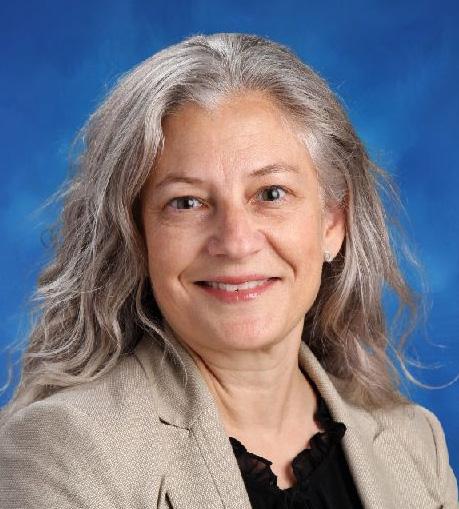
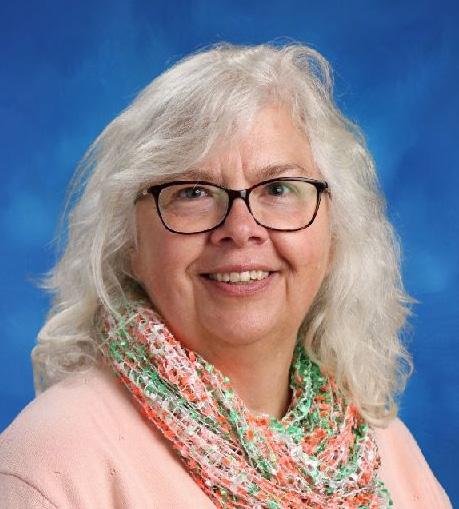
Kim Ayotte Learning Commons Coordinator kim.ayotte@hsc.on.ca Ext. 144
Melissa Poremba Senior School Librarian melissa.poremba@ hsc.on.ca Ext. 242
The support services of the Learning Commons (Library) faculty are actively considered in helping to design course units and/or projects. Digital literacy and effective research skills, including the appropriate use of citations to ensure academic integrity, are a part of every course’s design.
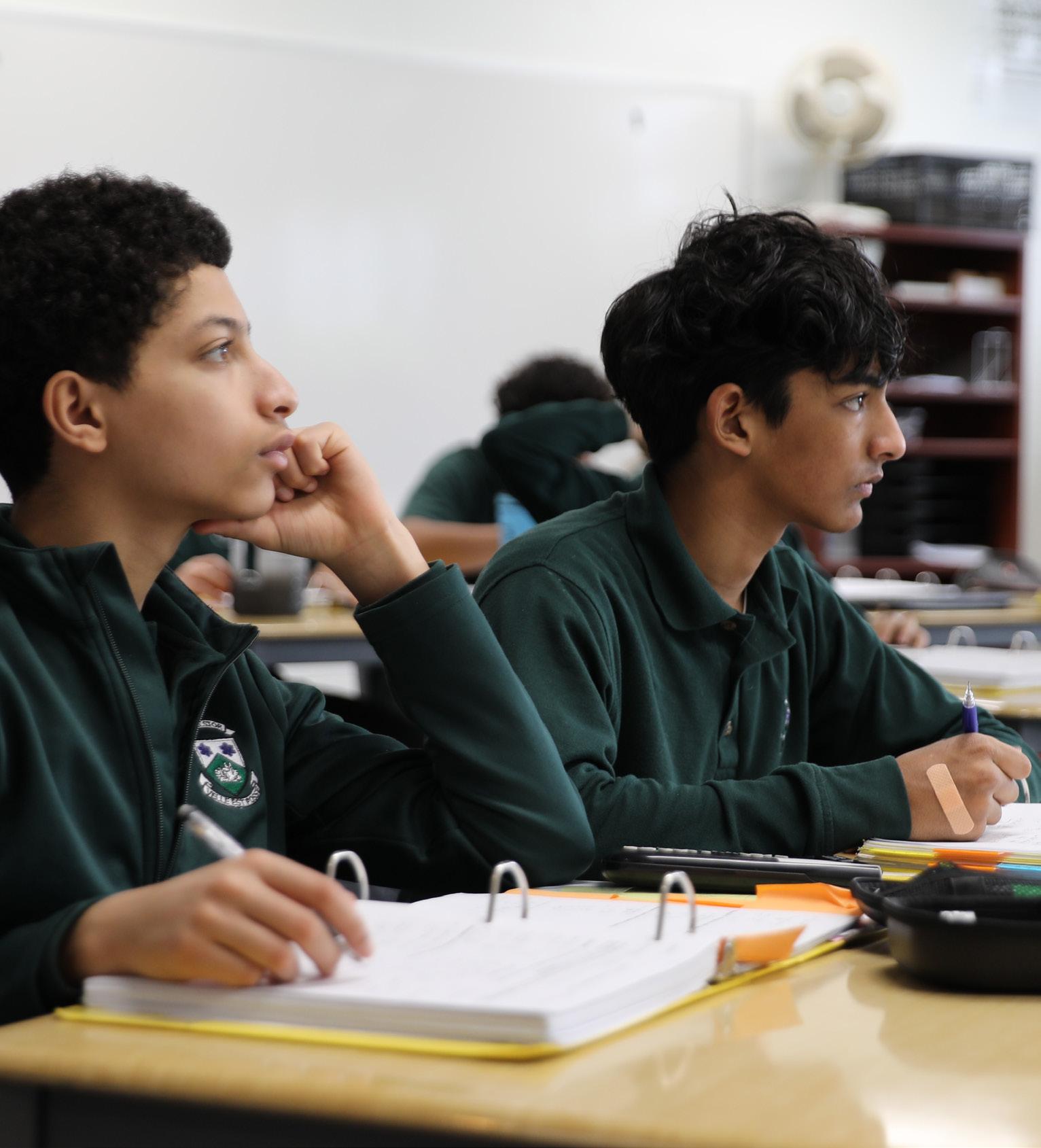
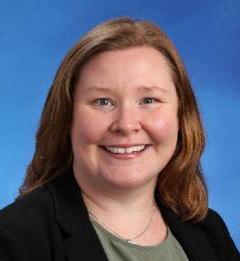
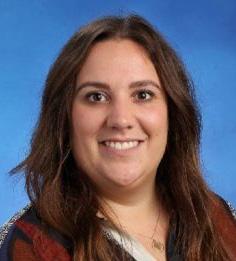
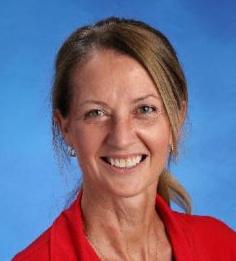


Yvonne Testa
Director of Student Success
Guidance Counsellor - Pine/Yre yvonne.testa@hsc.on.ca
Ext. 266
Barbara Pernar
Guidance Counsellor - Cedar/More barbara.pernar@hsc.on.ca
Ext. 216
Colleen Petch
Guidance Counsellor - Maple/Tay colleen.petch@hsc.on.ca
Ext. 240
Jordan Frost
Guidance Counsellor - Birch/Earn jordan.frost@hsc.on.ca
Ext. 215
Carol Mulvey
Student Success Officer carol.mulvey@hsc.on.ca
Ext. 173
PLANNING A PATHWAY/CAREER EDUCATION
The Student Success program spans all grade levels of the Senior School and addresses a wide variety of learning needs. The program is designed to manage the important decisions the students will need to make in their pursuit of post-secondary pathways.
FOCI FOR GRADES 9 AND 10:
» Supporting the transition from Middle School.
» Each year students prepare an Individual Pathways Plan (IPP) in consultation with their parents/ guardians, teachers and Tutorial Leaders (TL).
» Self-discovery assessments designed to help students understand their learning styles, personality type, skills and intelligence.
» Tracking community service requirements.
» Academic counselling for effective decision-making (courses and career planning).
» Compulsory credit career course.
» Career planning tools in Naviance.
» Resources for summer opportunities: school courses/ enrichment programs and summer school.
FOCI FOR GRADES 11 AND 12:
» Building on discoveries and interests of the program in Grades 9 and 10.
» Continued completion of annual IPP.
» Academic support and resources, including teaching assistants that students can access during their spare period.
» Exploring options for post-secondary pathways.
» Post-secondary application process (for the graduating students).
» Post-secondary events and programming.
» Student profile and university lists on Naviance.
» Completing Ministry expectations for Community Involvement hours as needed.
» Scholarship resources.
» Counselling for summer school courses.
PLANNING AHEAD FOR POST-SECONDARY APPLICATIONS
The course selection process is a time when students are faced with making important decisions as they consider and select their high school courses. Students should meet with their Guidance Counsellor and research university/ college websites for further information.
Subject selection is of particular importance as students move into Grade 11 where there are fewer compulsory courses and more elective options available. Students at this level are advised to build flexibility, depth and breadth into their choices, and to become knowledgeable about admission requirements to post-secondary programs. Grades 11 and 12 students are urged to assess their areas of strength and areas of interest. It is important for students to know themselves well and to enter their senior years with the confidence to excel in the courses which allow them to attain their academic goals. A student’s academic performance at the Grade 9 and 10 levels is taken into consideration when they select Grades 11 and 12 courses. Prerequisite credits should be in place and the student should demonstrate a solid academic background in the disciplines they wish to pursue in Grade 11 and 12.
STRATEGIES & RESOURCES FOR STUDENTS/PARENTS
Parents and students are encouraged to support their child’s pathway planning and course selection process by taking advantage of the many interactive learning opportunities offered by the Student Success Centre. All of these opportunities are communicated through myHSC and include:
» Alumni Panels organized by the Alumni Committee and hosted in the Student Success Centre – Events that bring together recent and not-so-recent alumni from a featured industry to connect with current students, and introduce students to different career pathways. Previous topics have included engineering, medicine, and business.
» Coffee with Counsellors – Virtual dropin sessions for parents to answer any questions.
» Post-secondary Dialogues – Virtual panel presentations with postsecondary representatives during the fall term. All Grade 12 students are expected to attend, and Grade 11 students are encouraged to join.
» Post-secondary representative visits –Scheduled throughout the year. Students actively participate in a variety of information sessions and workshops.
» Parent information evening sessions –Hosted by the SSC and tailored to the concerns of individual grade levels.
» Post-secondary fairs – Open to both parents and students of all grade levels.
In addition to the above opportunities, the following resources are always available to students to support in their pathway planning. Students are strongly advised to make regular use of all of these resources.
» Guidance Counsellors – Students will meet individually with their Guidance Counsellor in the Student Success centre to discuss their course selection including summer school choices. Counsellors will also provide guidance and support regarding post-secondary options and applications to institutions in Ontario, out-of-province, the US, the UK, and beyond. Guidance counsellors will also assist students in seeking out and applying for Gap year experiences.
» The Student Success Resource Page on myHSC – This database covers a wide variety of topics from course descriptions, summer school, wellness, study skills, tips to stay organized, and career exploration. It also contains post-secondary related information ranging from how to apply to schools in the USA and UK, to what to ask during a university campus tour.
» Naviance – Grade 10 to 12 students have access to this postsecondary international platform which provides students with personality/career and leadership self-exploration surveys, links to post-secondary school websites and statistical data. The platform is also used to submit US post-secondary applications for most US institutions. Students are introduced to Naviance in Grade 10 and are introduced to different activities each year.
» The Ontario Universities’ Application Centre – A central location for information pertaining to the Ontario university admissions process and procedures and can be accessed at www.ouac.on.ca.
» Ontario Colleges website – Resource to investigate applied degrees granted by Colleges in Ontario, accessible at www. ontariocolleges.ca.
» Students are also strongly advised to refer to the websites for their post-secondary institutions of interest for the most up-to-date information.

POST-SECONDARY REQUIREMENTS, APPLICATIONS AND ADMISSIONS PROCESS
Entrance criteria and admission requirements differ depending on the student’s program choice and institution.
Students seeking admission to Ontario universities must use an online application service developed by the Ontario Universities Application Centre (OUAC). Entrance to all Ontario universities is based upon a student’s six highest Grade 12 marks, including English and any required courses. Universities will refer to Grade 11 final marks are taken into consideration until Grade 12 U/M midterm and final marks are made available. Students should be sure to research prerequisites specific to their program as they can vary and will be part of the calculated admissions average. Some programs require an additional supplemental application or portfolio.
Students seeking admission to Ontario colleges must use an online application service developed for Ontario colleges called the Application Service for Ontario Public Colleges (OCAS). Entrance requirements will vary based on school and program. There are Certificate, Diploma and Degree programs at most colleges. Certificate programs are typically one year, Diploma programs are two years and Degree programs are four years in length.
Outside of Ontario, entrance criteria differ from province to province and country to country. For example, students applying to most colleges in the United States are required to submit a Standardized Achievement Test (SAT or ACT) result. There are usually five SAT testing days during the year and HSC is an approved SAT testing centre. American colleges generally require information on the student’s rank and conversion of marks to a grade point average (GPA). Such ranking is not a part of the Ontario education system, and assessment of a student considers their entire student profile. We recommend that students interested in attending American colleges write the SAT in May of their Grade 11 year. Some UK universities will require students to write specific tests such as the BMAT or UCAT. Registration for the tests opens in June and students often write in the summer before Grade 12.
For professional programs in Ontario, and for most colleges in the United States, students will also be asked to submit a personal profile, which includes information about academic goals, leadership experiences, extracurricular activities and letters of support from references. The process is extensive and it is important for students to budget ample preparation time to gather the required documentation. The student’s Tutorial Leader and Guidance Counsellors are key sources of support and can help facilitate this process.
We highly recommend that students who are considering scholarship applications as part of their university admissions process, begin to investigate the various opportunities in Grade 11, well in advance of their graduating year. Scholarship research and the subsequent application work are time-consuming endeavours. Students need to allocate the appropriate amount of time to explore the scholarship process if they wish to meet the appropriate deadlines. Only school nominated scholarships will be announced with school specific deadlines to ensure time for revision and selection. All other scholarships and deadlines are the responsibility of the student. Guidance Counsellors are available to help guide and direct students as they investigate potential scholarship opportunities.
NOTES
COURSE SELECTION
Course selection details are explained to students in grade-level meetings with a guidance counsellor in the fall. Students will then meet with their guidance counsellor to discuss their pathway planning and choices and make their selections. Students are encouraged to consult with their parents/guardians, tutorial leader, teachers, and guidance counsellor, as necessary, to ensure that thoughtful and appropriate choices are made. On the Student Success Centre Course Planning page on myHSC, there are topics pages which include course descriptions, elective course options and pathway charts.
Near the start of Semester 2, these course choices are reviewed by the guidance counsellors and Instructional Chairs to ensure that students have the required prerequisite courses. Following this, the guidance counsellors will follow up with students should there be any concerns. During the spring, students may decide to alter their course selection for the following school year based on a change of pathway or their semester two achievement. There is a course change request process for students to follow should they wish to request a course change.
COURSE AVAILABILITY
HSC believes in a program which offers both depth and breadth in learning options. At present, we offer over 100 different courses to students. HSC reviews its course offerings annually based upon department reviews, balance across areas of study, monitoring graduate patterns and trends, ensuring core knowledge and offering elective choices. HSC has every intention of delivering the courses listed and described in this calendar. On occasion, due to student course selection, timetabling and staffing constraints, it is not possible to guarantee that all courses will have sufficient student enrolment to be included in the master schedule for September. We therefore reserve the right to determine whether or not a course will actually run. To meet the needs of our students, we base our staffing and scheduling decisions on an analysis of the best use of academic resources (faculty and facility) with student enrolment per course as our guide.
COURSE REPETITION
Students in Grade 11 and 12 who repeat a course that they have previously completed successfully earn only one credit for the course. However, each attempt and the percentage grade obtained are recorded on the OST, and an “R” is entered in the “Credit” column for the course(s) with the lower percentage grade.

COURSE LOAD
All students are expected to carry a full course load as follows: Grades 9 and 10 –eight courses required in each year; Grade 11 – a minimum of seven courses is required; Grade 12 – a minimum of six courses is required. Students wishing to carry a reduced load must have the permission of the Senior School Principal or designate.
ELIGIBILITY TO REPEAT A COURSE
Students may not enroll in a course at HSC if they have already earned that credit. Students may only repeat a course at HSC if they received a failing grade (below 50%) on their prior attempt(s) and they complete the approval process outlined below. Students seeking to improve a grade for any reason—including GPA recalculation or college admissions—must pursue external credit-bearing opportunities (e.g., accredited summer programs, online platforms.)
Approval Process
To repeat a failed course, students must:
» Submit a Course Repetition Request Form to the Guidance Counsellor.
» Obtain approval from the Counsellor and designated school administrator.
» Work with their Counsellor to ensure that repeating the course aligns with their academic plan and graduation requirements.
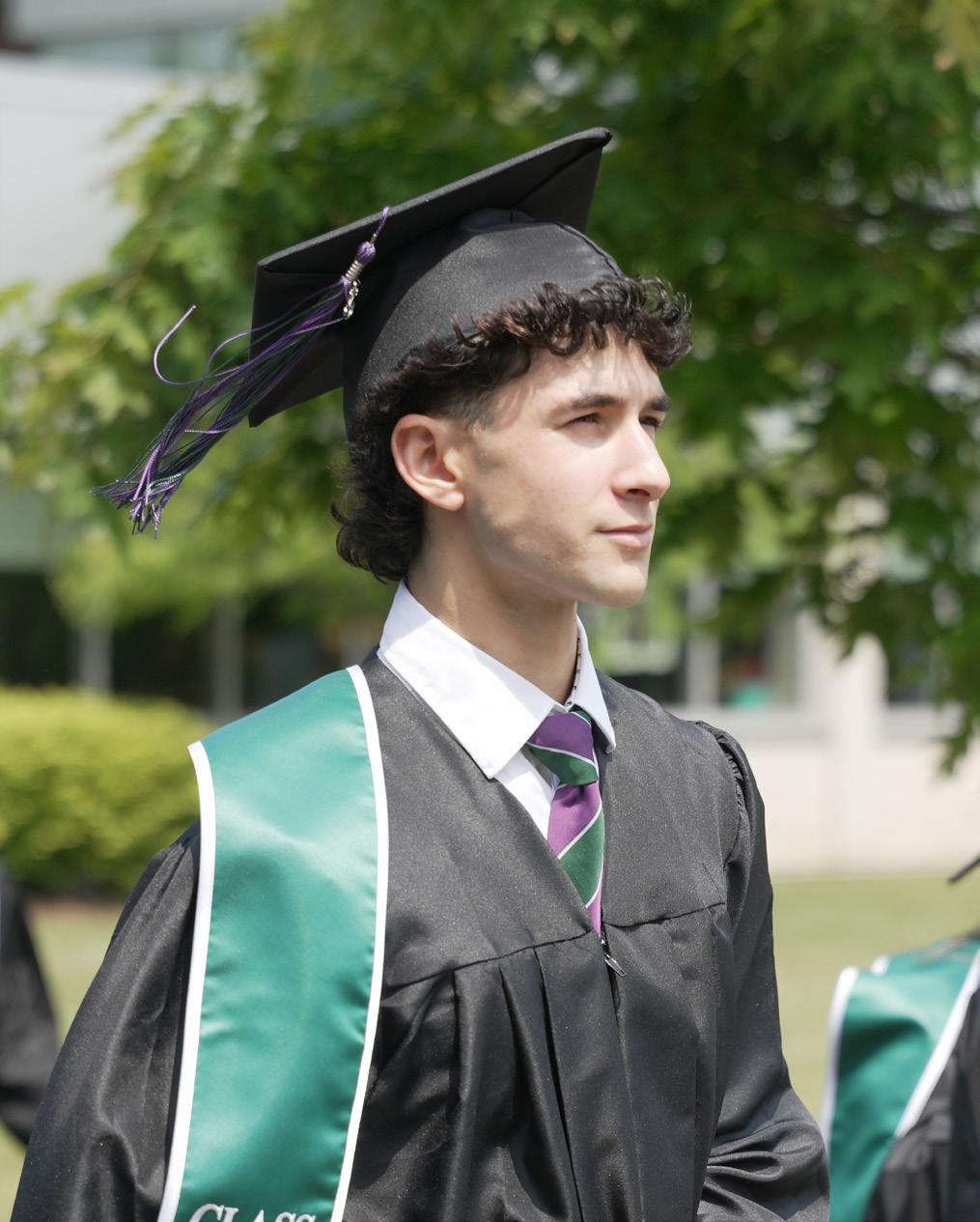
COURSE CODES & TYPES
Course codes are adopted from the Ontario Secondary School Curriculum guidelines and can be interpreted as follows:
EXPLANATION OF ENG1D:
» The first three characters are from the Ministry’s list of common course codes ENG (English)
» The fourth character denotes the grade level 1 - Year 1 (Other options: 2-Grade 10; 3-Grade 11; 4-Grade 12; or for some language courses: B = Grade 10; C = Grade 11; D = Grade 12
» The fifth character describes the academic level D – Academic (Other options: see below)
D – Academic courses develop students’ knowledge and skills by emphasizing theoretical, abstract applications of the essential concepts and incorporating practical applications as appropriate.
P – Applied Courses focus on practical applications and concrete examples of educational concepts.
W – Destreamed courses resulted from the combination of the Academic and Applied streams, began in 2021.
U – University Preparation Courses equip students with knowledge and skills for university entrance.
M – University/College Preparation Courses equip students with knowledge and skills for university or college entrance.
O - Open Courses
Prepare students for further study in certain subjects and to enrich their education generally.
E – Essential Courses focus on literacy, numeracy, essential job skills and essential concepts. (HSC does not offer Essential Courses at this time).
Grading and Transcript Impact
Repeated Course Grades: In grades 9 or 10 courses, the repeated grade would replace the original grade on the transcript. In the case of a grade 11 or 12 course, both marks would be recorded on the transcript, but the lower of the two grades would not have a credit value and would be designated with the note *R* for repeat. Add: These reporting practices are consistent with Ontario’s Full Disclosure Policy for the Ontario Student Transcript.
Course Add and Drop Procedures
Timetable change requests should be made to support the student’s academic plan. If changes are required, students are to complete an online course change request form which opens between semesters, in the spring and again in August.
Students can meet with their guidance counsellor in September to discuss options. The last day in each semester on which a student may add a course is indicated in the table on the Academic Year section of this calendar. In either semester, the last day a student may only drop a course, without it being registered on the OST, is the fifth instructional day of class after the mid-semester report card. It is too late for the student to add a course at this time.
Note: If a student in Grade 11 or 12 receives permission from the Senior School Principal to withdraw from a course after this time, the student’s percentage grade at the time of the withdrawal will be entered in the OST and a “W” will appear in the “credit earned” column of the OST, in accordance with provincial guidelines.
PREREQUISITE AND RECOMMENDED PREPARATION
As mandated by the Ontario Ministry of Education, prerequisites must be completed before the course can be taken. Where applicable, we have listed in the course descriptions additional recommended preparation which, in our experience, indicates the desired level of academic background needed to succeed in the given course.
Note: In exceptional circumstances, a prerequisite may be waived by the Senior School Principal. This may be as a result of limited course offerings or evidence of suitable background knowledge that has been demonstrated by a student. Subject proficiency will be assessed in consultation with the Instructional Chair. Appropriate documentation will be placed in the OSR when prerequisites are waived.

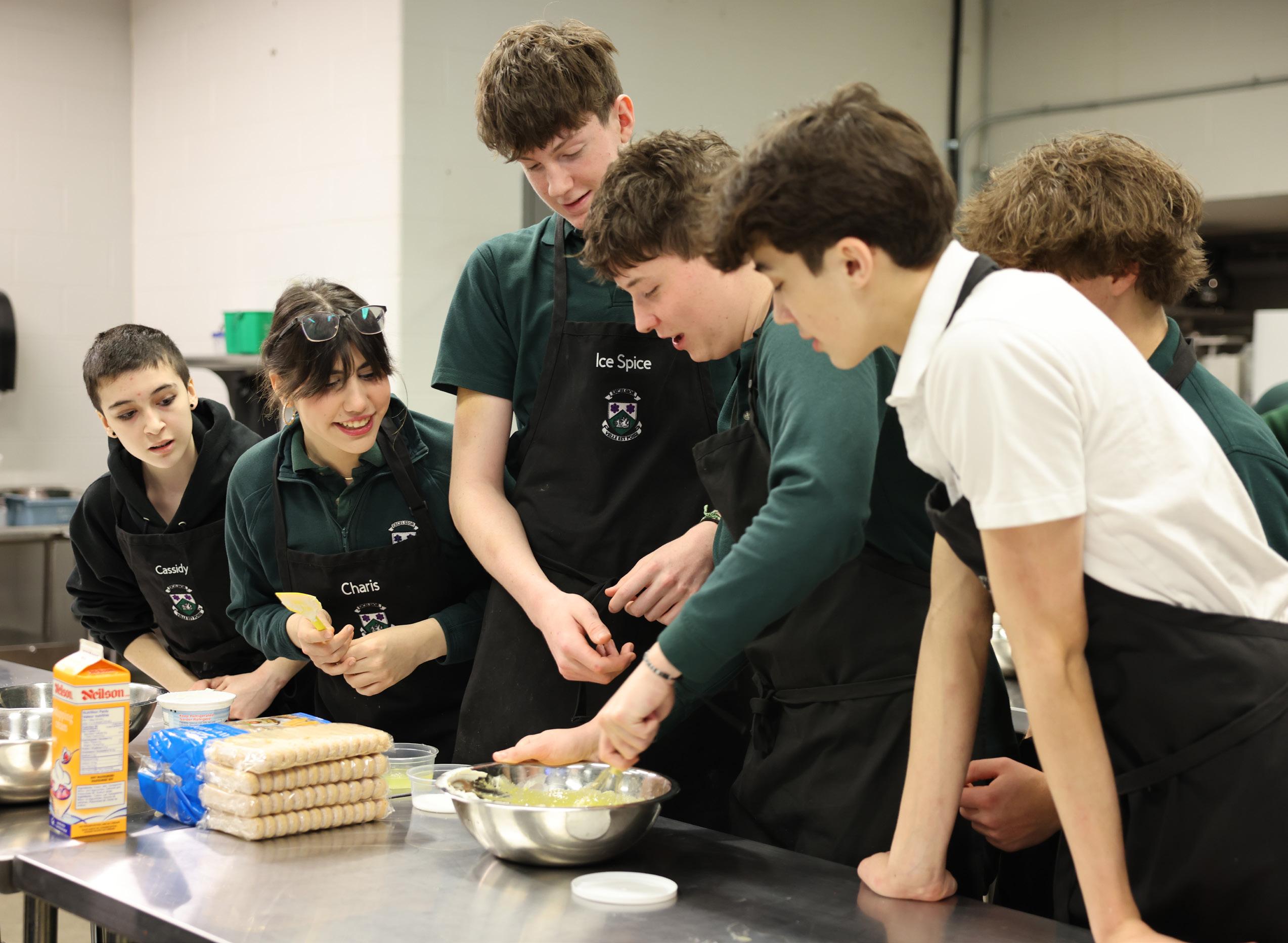
COURSE DESCRIPTIONS
THE ARTS
» DRAMATIC ARTS
Dramatic Arts
Grade 9 | Open | ADA1O
Prerequisite: None
This course provides opportunities for students to explore dramatic forms and techniques, using material from a wide range of sources and cultures. Students use the elements of drama to examine situations and issues that are relevant to their lives. Students create, perform, discuss, and analyze drama, and then reflect on the experiences to develop an understanding of themselves, the art form and the world around them.
Dramatic Arts
Grade 10 | Open | ADA2O
Prerequisite: None
This course provides opportunities for students to explore dramatic forms, conventions and techniques. Students explore a variety of dramatic sources from various cultures and representing a range of genres. Students use the elements of drama in creating and communicating through dramatic works. Students assume responsibility for decisions made in the creative and collaborative processes and will reflect on their experiences.
Dramatic Arts
Grade 11 | U/C Preparation | ADA3M
Prerequisite: ADA1O or ADA2O
This course requires students to create and perform in dramatic presentations. Students will analyse, interpret, and perform dramatic works from various cultures and time periods. Students will research various acting styles and conventions that could be used in their presentations, and analyse the functions of playwrights, directors, actors, designers, technicians, and audiences.
Dramatic Arts
Grade 12 | U/C Preparation | ADA4M
Prerequisite: ADA3M
This course requires students to experiment individually and collaboratively with forms and conventions of both drama and theatre
from various cultures and time periods. Students will interpret dramatic literature and other texts and media sources while learning about various theories of directing and acting. Students will examine the significance of dramatic arts in various cultures, and will analyse how the knowledge and skills developed in drama are related to their personal skills, social awareness, and goals beyond secondary school.
» INTEGRATED ARTS
Integrated Arts
Grade 9 or 10 | Open | ALC10/ALC20
Prerequisite: None
This course integrates two or more of the arts (dance, drama, media arts, music, and visual arts), giving students the opportunity to produce and present integrated artworks created individually or collaboratively. Students will demonstrate innovation as they learn and apply concepts, styles and conventions unique to the various arts and acquire skills that are transferable beyond the classroom. Students will use the creative process and responsible practices to explore solutions to integrated arts challenges.
» MUSIC
Music, Instrumental
Grade 9 | Open | AMI1O
Prerequisite: None
This course emphasizes the creation and performance of music at a level consistent with previous experience and is aimed at developing technique, sensitivity and imagination. Students develop musical literacy skills by using the creative and critical analysis processes in composition, performance and a range of reflective and analytical activities. Students develop an understanding of the conventions and elements of music and of safe practices related to music, and develop a variety of skills transferable to other areas of their life.
Music, Instrumental
Grade 10 | Open | AMI2O
Recommended Preparation: AMI1O
This course emphasizes the creation and performance of music at a level consistent with previous experience. Students develop musical literacy skills by using the creative and critical analysis processes in composition, performance and a range of reflective and analytical activities. Students develop their understanding of musical conventions, practices and terminology and apply the elements of music in a range of activities. They also explore the function of music in society with reference to the self, communities and cultures.
Music, Instrumental
Grade 11 | U/C Preparation | AMI3M
Prerequisite: AMI1O or AMI2O
This course provides students with opportunities to develop their musical literacy through the creation, appreciation, analysis and performance of music including traditional, commercial and art music. Students apply the creative process when performing appropriate technical exercises and repertoire and will employ the critical analysis processes when reflecting on, responding to live and recorded performances. Students consider the function of music in society and the impact of music on individuals and communities. They explore how to apply skills developed to their life and careers.
Music, Instrumental
Grade 12 | U/C Preparation | AMI4M
Prerequisite: AMI3M
This course enables students to enhance their musical literacy through the creation, appreciation, analysis and performance of music. Students perform traditional, commercial and art music, and respond with insight to live and recorded performances. Students enhance their understanding of the function of music in society and the impact of music on themselves and various communities and cultures. Students analyze how to apply skills developed in music to their life and careers.
NOTE FOR INSTRUMENTAL COURSES: All instrumental courses are also offered with an emphasis on jazz (AMI1OJ, AMI2OJ, AMI3MJ, AMI4MJ). Enrolment is by instructor invitation following an audition.
Music, Vocal
Grade 9 | Open | AMV1O
Prerequisite: None
This program is intended to develop students’ understanding and appreciation of music through practical skills and creative work in vocal music. Through singing in ensembles and in solo work, students not only find in music a source of enjoyment and personal satisfaction, but also gain creative problem-solving skills, individual and cooperative work habits, knowledge of themselves and others, a sense of personal responsibility and connections to their communities and future careers.
Music, Vocal
Grade 10 | Open | AMV2O
Prerequisite: None
This course emphasizes performance of vocal music at an intermediate level that strikes a balance between challenge and skill. Learning includes participating in creative activities, vocal ensemble, solo work and listening activities. Students are develop a thorough understanding of the language of music, including elements, terminology and history.
Music, Vocal
Grade 11 | Open | AMV3M
Prerequisite: None
This course develops students’ artistic knowledge and skills through the performance of vocal music and the preparation of musical productions. Students will perform appropriate works from vocal ensemble repertoire and contemporary solo vocal works in popular styles. Independently and in groups, they will also plan, market and produce musical productions, using appropriate technology, and will evaluate results.
Music, Vocal
Grade 12 | U/C Preparation | AMV4M
Prerequisite: AMV3M
This course develops students’ artistic knowledge and skills through the performance of vocal music. Students will perform appropriate works from vocal ensemble repertoire and contemporary solo vocal works in popular styles. Students apply the creative process when performing appropriate technical exercises and repertoire and will employ the critical
analysis processes when reflecting on, responding to, and analyzing live and recorded performances. Students consider the function of music in society and the impact of music on individuals and communities. They explore how to apply skills developed to their life and careers.
» VISUAL ARTS
Visual Arts
Grade 9 | Open | AVI1O
Prerequisite: None
This course is exploratory in nature, offering an overview of visual arts as a foundation for further study. Students become familiar with the elements and principles of design and the expressive qualities of materials by using a range of media, processes, techniques and styles. Students use the creative and critical analysis processes and interpret art within a personal, contemporary and historical context.
Visual Arts
Grade 10 | Open | AVI2O
Prerequisite: None
This course enables students to develop their skills in producing and presenting art by introducing them to new ideas, materials and processes for artistic exploration and experimentation. Students apply the elements and principles of design when exploring the creative process. Students use the critical analysis process to reflect on and interpret art within a personal, contemporary and historical context.
Visual Arts
Grade 11 | U/C Preparation | AVI3M
Prerequisite: AVI1O or AVI2O
This course enables students to further develop their knowledge and skills in visual arts. Students use the creative process to explore a wide range of themes through studio work that may include drawing, painting, sculpting and printmaking, as well as the creation of collage, multimedia works and works using emergent technologies. Students use the critical analysis process when evaluating their own work and the work of others. The course may be delivered as a comprehensive program or through a program focused on a particular artform (e.g., photography, video, computer graphics, information design).
Visual Arts
Grade 12 | U/C Preparation | AVI4M
Prerequisite: AVI3M
This course focuses on enabling students to refine their use of the creative process when creating and presenting two- and three-dimensional art works using a variety of traditional and emerging media and technologies. Students use the critical analysis process to deconstruct art works and explore connections between art and society. The studio program enables students to explore a range of materials, processes and techniques that can be applied in their own art production. Students also make connections between various works of art in personal, contemporary, historical and cultural contexts.
BUSINESS STUDIES
» ACCOUNTING
Financial Accounting Fundamentals
Grade 11 | U/C Preparation | BAF3M
Prerequisite: None
This course introduces students to the fundamental principles and procedures of accounting. Students will develop financial analysis and decision-making skills that will assist them in future studies and/or career opportunities in business. Students will acquire an understanding of accounting for a service and a merchandising business, computerized accounting, financial analysis and current issues and ethics in accounting.
Financial Accounting Principles
Grade 12 | U/C Preparation | BAT4M
Prerequisite: BAF3M
This course introduces students to advanced accounting principles that will prepare them for post-secondary studies in business. Students will learn about financial statements for various forms of business ownership and how those statements are interpreted in making business decisions. This course expands students’ knowledge of sources of financing, further develops accounting methods for assets and introduces accounting for partnerships and corporations.
COURSE NOTE: HSC also offers this course
virtually through its affiliation with the eLearning Consortium of Canada.
Entrepreneurship: The Venture
Grade 11 | College Preparation | BDI3C
Prerequisite: None
This course focuses on ways in which entrepreneurs recognize opportunities, generate ideas and organize resources to plan successful ventures that enable them to achieve their goals. Students will create a venture plan for a schoolbased or student-run business. Through hands-on experiences, students will have opportunities to develop the values, traits and skills most often associated with successful entrepreneurs.
Business Leadership: Management Fundamentals
Grade 12 | U/C Preparation | BOH4M
Prerequisite: None
This course focuses on the development of leadership skills used in managing a successful business. Students will analyse the role of a leader in business, with a focus on decision-making, management of group dynamics, workplace stress and conflict, motivation of employees and planning. Effective business communication skills, ethics and social responsibility are also emphasized.
International Business Fundamentals
Grade 12 | University/College Preparation | BBB4M
Prerequisite: None
This course provides an overview of the importance of international business and trade in the global economy and explores the factors that influence success in international markets. Students will learn about the techniques and strategies associated with marketing, distribution, and managing international business effectively. This course prepares students for post-secondary programs in business, including international business, marketing, and management.
Sports & Entertainment Marketing
Grade 12 | University Preparation | IDC4U
Prerequisites: any university or university/ college preparation course;
This course will help students develop and consolidate the skills required for and knowledge of different subjects and disciplines to solve problems, make
decisions, create personal meaning and present findings beyond the scope of a single subject or discipline. Students will apply the principles and processes of inquiry and research to effectively use a range of print, electronic and mass media resources; to analyze historical innovations and exemplary research; and to investigate real-life situations and career opportunities in interdisciplinary endeavours. They will also assess their own cognitive and affective strategies, apply general skills in both familiar and new contexts, create innovative products and communicate new knowledge.
» CIVICS
Civics and Citizenship
Grade 10 | Open | CHV2O
Prerequisite: None
This course explores rights and responsibilities associated with being an active citizen in a democratic society. Students will explore issues of civic importance and the influence of social media, while developing their understanding of the role of civic engagement and of political processes in the local, national, and/or global community. Students will apply the concepts of political thinking and the political inquiry process to investigate, and express informed opinions about, a range of political issues and developments that are both of significance in today’s world and of personal interest to them. This course also includes learning on digital literacy and critical-thinking skills, the mechanisms of government, Indigenous governance systems and structures, the historical foundations of the rights and freedoms we enjoy in Canada, ways in which government policy affects individuals’ lives and the economy, and ways for students to serve their communities.
COURSE NOTE: This ½ credit course is taken online at HSC during the Grade 9 year. Alternatively, it is also offered online during summer for an additional fee.
» HISTORY
Canadian History since World War I
Grade 10 | Academic | CHC2D
Prerequisite: None
This course explores social, economic, and political developments and events and their impact on the lives of different individuals, groups, and communities, including First Nations, Métis, and Inuit individuals and communities, in Canada since 1914. Students will examine the role of conflict and cooperation in Canadian society, Canada’s evolving role within the global community, and the impact of various individuals, organizations, and events on identities, citizenship, and heritage in Canada. Students will develop an understanding of some of the political developments and government policies that have had a lasting impact on First Nations, Métis, and Inuit individuals and communities. They will develop their ability to apply the concepts of historical thinking and the historical inquiry process, including the interpretation and analysis of evidence, when investigating key issues and events in Canadian history since 1914.
COURSE NOTE: This course is also available online during summer for an additional fee.
World History since 1900: Global and Regional Interactions
Grade 11 | Open | CHT3O
Prerequisite: Canadian History since World War I, Grade 10, Academic or Applied, or a locally developed compulsory course (LDCC)
This course focuses on major developments in world history from 1900 to the present. Students will explore the causes and consequences of global and regional conflicts, the impact of significant individuals and social movements and the effects of social, economic and political developments around the world. Students will extend their ability to apply the concepts of historical thinking and the historical inquiry process, including the analysis of evidence, when investigating interactions within and between nations and other historical developments and events, including those that continue to affect people in various parts of the world.
CANADIAN AND WORLD STUDIES
American History
Grade 11 | University Preparation | CHA3U
Prerequisite: Canadian History since World War I, Grade 10 Academic or Applied
This course explores key aspects of the social, economic and political development of the United States from pre-contact to the present. Students will examine the contributions of groups and individuals to the country’s evolution and will explore the historical context of key issues, trends and events that have had an impact on the United States, its identity and culture and its role in the global community. Students will extend their ability to apply the concepts of historical thinking and the historical inquiry process, including the interpretation and analysis of evidence, when investigating various forces that helped shape American history.
World History Since the Fifteenth Century
Grade 12 | University Preparation | CHY4U
Prerequisite: Any university or university/ college preparation course in Canadian and world studies, English, or social sciences and humanities
This course traces major developments and events in world history since approximately 1450. Students will explore social, economic, and political changes, the historical roots of contemporary issues as well as the role of conflict and cooperation in global interrelationships. They will extend their ability to apply the concepts of historical thinking and the historical inquiry process, including the interpretation and analysis of evidence, as they investigate key issues and ideas and assess societal progress or decline in world history.
»
GEOGRAPHY
Exploring Canadian Geography
Grade 9 | De-streamed | CGC1W
Prerequisite: None
This course builds on learning in Grades 7 and 8 in geography. Students will explore relationships within and between Canada’s natural and human systems and how they interconnect with other parts of the world. Students will also examine environmental and economic issues, and their impact related to topics such as natural resources and industries, careers, land use and responsible development, and sustainability. In addition, students
will understand the connections that diverse communities and individuals have with the physical environment and each other throughout Canada, including First Nations, Métis, and Inuit perspectives. Students will apply geographic thinking, use the geographic inquiry process, and use geospatial technologies throughout their investigations.
COURSE NOTE: This course is also available online during summer for an additional fee.
» ECONOMICS
The Individual and the Economy
Grade 11 | U/C Preparation | CIE3M
Prerequisite: Canadian History since WWI, Grade 10, Academic or Applied
This course explores issues and challenges facing the Canadian economy as well as the implications of various responses to them. Students will explore the economic role of firms, workers and government as well as their own role as individual consumers and contributors, and how all of these roles contribute to stability and change in the Canadian economy. Students will apply concepts of economic thinking and the economic inquiry process, including economic models, to investigate the impact of economic issues and decisions at the individual, regional and national level.
Analyzing Current
Economic Issues
Grade 12 | University Preparation | CIA4U
Prerequisite: Any university or university/ college preparation course in Canadian and world studies, English, or social sciences and humanities. At HSC, it is strongly recommended that CIE3M is completed prior to taking this course.
This course examines current Canadian and international economic issues, developments, policies and practices from diverse perspectives. Students will explore the decisions that individuals and institutions, including governments, make in response to economic issues such as globalization, trade agreements, economic inequalities, regulation and public spending. Students will apply the concepts of economic thinking and the economic inquiry process, as well as economic models and theories, to investigate and develop informed opinions about economic trade-offs, growth, sustainability and related economic issues.
» LAW
Understanding Canadian Law
Grade 11 | U/C Preparation | CLU3M
Prerequisite: Canadian History since World War I, Grade 10, Academic or Applied
This course explores Canadian law, with a focus on legal issues that are relevant to the lives of people in Canada. Students will gain an understanding of laws relating to rights and freedoms in Canada, our legal system, family, contract, employment, tort and criminal law. Students will develop legal reasoning skills, apply the concepts of legal thinking and the legal studies inquiry process when investigating a range of legal issues to formulate and communicate informed opinions about them.
Canadian and International Law
Grade 12 | University Preparation | CLN4U
Prerequisite: Any university or university/ college preparation course in Canadian and world studies, English or social sciences and humanities
This course explores a range of contemporary legal issues and how they are addressed in both Canadian and international law. Students will develop an understanding of the principles of Canadian and international law including issues related to human rights and freedoms, conflict resolution, criminal, environmental and workplace law both in Canada and internationally. Students will apply the concepts of legal thinking and the legal studies inquiry process to develop legal reasoning skills when investigating these and other issues in both Canadian and international contexts.
» POLITICS
Canadian and International Politics
Grade 12 | University Preparation | CPW4U
Prerequisite: Any university or university/ college preparation course in Canadian and world studies, English, or social sciences and humanities
This course explores various perspectives on issues in Canadian and world politics. Students will explore political decisionmaking and ways in which individuals, stakeholder groups and institutions, including governments, multinational corporations and non-governmental
organizations, respond to and work to address domestic and international issues. Students will apply the concepts of political thinking and the political inquiry process to investigate issues, events and developments of national and international political importance, and to develop informed opinions.
CLASSICAL STUDIES
» CLASSICAL CIVILIZATION
Classical Civilization
Grade 12 | University Preparation | LVV4U
Prerequisite: English, Grade 10, Academic or Applied
This course introduces students to the rich cultural legacy of the Classical world and encourages them to make connections between antiquity and other societies and to their own personal experiences. Students investigate such aspects of Classical culture as its mythology and literature, art, architecture, philosophy, science and technology, as well as elements of the ancient Greek and Latin languages. By reading Classical authors in English translation and examining material culture brought to light through archaeology, students enhance both their communication skills and their ability to think critically and creatively. In addition, they are encouraged to be culturally sensitive, independent learners who appreciate the interconnectedness of ancient and modern societies and who are able to apply this understanding to their future endeavours.
COURSE NOTE: This course is offered in alternate years from Philosophy: Questions and Theories, Grade 12, University Preparation, HZT4U.
COOPERATIVE EDUCATION
» COOPERATIVE EDUCATION
Navigating the Workplace Grade 12 | Open | GLN4O
Prerequisite: None
This course provides students with
opportunities to develop the workplace essential skills and work habits required for success in all types of workplaces. Students will explore occupations and careers of interest through participation in real workplace experiences.They will make plans for continued learning and work, collaborate with others to design learning experiences, and investigate the resources and support required to make a smooth transition to their postsecondary destination.
COURSE NOTE: This course is also available during summer for an additional fee.
COMPUTER STUDIES
Digital Technology and Innovations in the Changing World
Grade 10 | Open | ICD2O
Prerequisite: None
This course helps students develop cuttingedge digital technology and computer programming skills that will support them in contributing to and leading the global economic, scientific and societal innovations of tomorrow. Students will learn and apply coding concepts and skills to build hands-on projects and investigate artificial intelligence, cybersecurity, and other emerging digital technologies that connect to a wide range of fields and careers. Using critical thinking skills with a focus on digital citizenship, students will investigate the appropriate use and development of the digital technologies that they encounter every day, as well as the benefits and limitations of these technologies.
Introduction to Computer Science
Grade 11 | University Preparation | ICS3U
Recommended Preparation: ICS2O
This course introduces students to computer science. Students will design software independently and as part of a team using industry-standard programming tools and applying the software development life-cycle model. They will also write and use sub programs within computer programs. Students develop creative solutions for various types of problems as their understanding of the computing environment grows. They also explore environmental and ergonomic issues, emerging research in computer
science and global career trends in computer related fields.
Computer Science
Grade 12 | University Preparation | ICS4U
Prerequisite: ICS3U
This course enables students to further develop knowledge and skills in computer science. Students use modular design principles to create complex and fully documented programs according to industry standards. Student teams manage a large software development project, from planning through to project review. Students also analyze algorithms for effectiveness. They investigate ethical issues in computing and further explore environmental issues, emerging technologies, areas of research in computer science and careers in the field.
ENGLISH
English
Grade 9 | ENL1W
Prerequisite: None
This course enables students to continue to develop and consolidate the foundational knowledge and skills that they need for reading, writing, and oral and visual communication. Throughout the course, students will continue to enhance their media literacy and critical literacy skills, and to develop and apply transferable skills, including digital literacy. Students will also make connections to their lived experiences and to society and increase their understanding of the importance of language and literacy across the curriculum.
English
Grade 10 | Academic | ENG2D
Prerequisite: ENG1D
This course is designed to extend the range of oral communications, reading, writing and media literacy skills that students need for success in their secondary school academic programs and their daily lives. Students analyze literary text from contemporary and historical periods, interpret and evaluate informational and graphic texts, to create oral, written and media texts in a variety of forms. An important focus is the use of strategies that contribute to effective communication.
This course is intended to prepare students for the compulsory Grade 11 university or college preparation course.
English
Grade 11 | University Preparation | ENG3U
Prerequisite: ENG2D
This course emphasizes the development of literacy, communication, critical and creative thinking skills necessary for success in academic and daily life. Students analyze challenging literary texts from various periods, countries and cultures, as well as a range of informational and graphic texts, to create oral, written and media texts in a variety of forms. An important focus is on using language with precision and clarity and incorporating stylistic devices appropriately and effectively. The course is intended to prepare students for the compulsory Grade 12 university or college preparation course.
English Grade 12 | University Preparation | ENG4U
Prerequisite: ENG3U
This course emphasizes the consolidation of the literacy, communication, and critical and creative thinking skills necessary for success in academic and daily life. Students analyze a range of challenging literary texts from various periods, countries, and cultures; interpret and evaluate informational and graphic texts; and create oral, written and media texts in a variety of forms. An important focus is on using academic language coherently and confidently selecting the reading strategies best suited to particular texts and developing greater control in writing. The course is intended to prepare students for university, college or the workplace.
COURSE NOTE: This course is also available online during summer for an additional fee.
The Writer’s Craft
Grade 12 | University Preparation | EWC4U
Prerequisite: ENG3U
This course emphasizes knowledge and skills related to the craft of writing. Students analyze models of effective writing; use a workshop approach to produce a range of works; identify and use techniques required for specialized forms of writing; and identify effective ways to improve the quality of their writing. They also complete a major paper as part of a
creative or analytical independent study project, and investigate opportunities for publication and for writing careers.
FRENCH AS A SECOND LANGUAGE
Core French
Grade 9 | Academic | FSF1D
Prerequisite: Minimum of 600 hours of French instruction, or equivalent
This course provides opportunities for students to communicate and interact in French with increasing independence with a focus on familiar topics related to their daily lives. Students develop their skills in listening, speaking, reading and writing by using language learning strategies introduced in the elementary Core French program, and applying creative and critical thinking skills in various ways. They also enhance their understanding of and appreciation for diverse French-speaking communities and develop skills necessary for lifelong language learning.
Core French
Grade 10 | Academic | FSF2D
Prerequisite: Core French, Grade 9
This course provides opportunities for students to communicate in French about personally relevant, familiar and academic topics in real-life situations with increasing independence. Students exchange information, ideas and opinions with others in guided and increasingly spontaneous spoken interactions. Students develop their skills in listening, speaking, reading and writing through the selective use of strategies that contribute to effective communication. They also increase their understanding of and appreciation for diverse French-speaking communities and develop skills necessary for lifelong language learning.
Core French
Grade 11 | University Preparation | FSF3U
Prerequisite: FSF2D
This course offers students extended opportunities to speak and interact in real-life situations in French with greater independence. Students will develop their listening, speaking, reading and writing skills, as well as their creative and critical thinking skills, through responding to and exploring a variety of oral and written texts.
They will also broaden their understanding of and appreciation for diverse Frenchspeaking communities and will develop skills necessary for lifelong language learning.
Core French
Grade 12 | University Preparation | FSF4U
Prerequisite: FSF3U
This course provides extensive opportunities for students to speak and interact in French independently. Students will develop their listening, speaking, reading and writing skills, apply language learning strategies in a wide variety of real-life situations, and develop their creative and critical thinking skills through responding to and interacting with a variety of oral and written texts. They will also enrich their understanding of and appreciation for diverse French-speaking communities and will develop skills necessary for lifelong language learning.
GUIDANCE AND CAREER EDUCATION
Learning Strategies 1: Skills for Success in Secondary School
Grades 9 & 10 | Open | GLE1O & GLE2O
Prerequisite: None. * Closed enrolment. Permission must be granted by the Learning Services Specialist and/or the Senior School Principal
This course focuses on learning strategies to help students become better, more independent learners. Students learn how to develop and apply literacy and numeracy skills, personal management skills and interpersonal and teamwork skills to improve learning and achievement in school, the workplace and the community. The course helps students build confidence and motivation to pursue opportunities for success in secondary school and beyond.
Advanced Learning Strategies: Skills for Success after Secondary School
Grades 11 & 12 | Open | GLE3O & GLE4O
Prerequisite: None. * Closed enrolment. Permission must be granted by the Learning Services Specialist and/or the Senior School Principal
This course improves students’ learning and personal management skills, preparing them to make successful transitions to work, training and/or post secondary education destinations. Students assess
their learning abilities and use literacy, numeracy and research skills as well as personal management techniques to maximize their learning. Students investigate trends and resources to support their post-secondary employment, training and/or education choices and develop a plan to help them meet their learning and career goals.
Career Studies
Grade 10 | Open (1/2 credit) | GLC2O
Prerequisite: None
This course gives students the opportunity to develop the skills, knowledge, and habits that will support them in their education and career/life planning. Students will learn about global work trends and seek opportunities within the school and community to expand and strengthen their transferable skills and their ability to adapt to the changing world of work. On the basis of exploration, reflective practice and decision-making processes, students will make connections between their skills, interests and values and their post-secondary options– whether in apprenticeship training, college, community living, university or the workplace. They will set goals and create a plan for their first post-secondary year. As part of their preparation for the future, they will learn about personal financial management – including the variety of saving and borrowing tools available to them and how to use them to their advantage. Students will also develop a budget for their first year after secondary school.
COURSE NOTE: This ½ credit course is taken online at HSC during the Grade 10 year. Alternatively, it is also offered online during summer for an additional fee.
Junior Teaching Assistant (JTA)
Grade 11 | Open | GPP3O
Prerequisite: None
This course prepares students to act in leadership and peer support roles within academic courses of their choosing. They will design and implement a plan for contributing to their school and/or community; further develop their subject expertise, their capacity as leaders; enhance their communication skills, interpersonal relations, teamwork and conflict management; and apply those skills in leadership and/or peer support roles (i.e., as a student council member or peer tutor).
Students will examine group dynamics and learn the value of diversity within groups and communities. Students must complete the application process which includes an application and interview to be considered for the course.
Junior Teaching Assistant (Special Projects)
Grade 12 | University Preparation | IDC4U
Prerequisite: Any university or university/college preparation course
This course will help students develop and consolidate the skills required for and knowledge of different subjects and disciplines to solve problems, make decisions, create personal meaning and present findings beyond the scope of a single subject or discipline. Students will apply the principles and processes of inquiry and research to effectively use a range of print, electronic and mass media resources; to analyze historical innovations and exemplary research; and to investigate real-life situations and career opportunities in interdisciplinary endeavours. They will also assess their own cognitive and affective strategies, apply general skills in both familiar and new contexts, create innovative products and communicate new knowledge.
HEALTH AND PHYSICAL EDUCATION
All Health and Physical Education courses at HSC are offered in a co-educational environment. Some courses also have an option to learn in an environment dedicated to female-identifying and non-binary students; these courses have a note below the course description.
Healthy Active Living Education
Grade 9 | Open | PPL1O
Prerequisite: None
This course equips students with the knowledge and skills they need to make healthy choices now and lead healthy, active lives in the future. Through participation in a wide range of physical activities, students develop knowledge and skills related to movement competence and personal fitness that provide a foundation for active living. Students also acquire an understanding of the factors and skills that contribute to healthy development and
learn how their own wellbeing is affected by, and affects, the world around them. Students build their sense of self, learn to interact positively with others, and develop their ability to think critically and creatively.
COURSE NOTE: Students choosing a coeducational environment should select PPL1OO, while students choosing a femaleidentifying/non-binary environment should select PPL1OX.
Healthy Active Living Education
Grade 10 | Open | PPL2O
Prerequisite: None
This course enables students to further develop the knowledge and skills they need to make healthy choices now and lead healthy, active lives in the future. Through participation in a wide range of physical activities, students develop knowledge and skills related to movement competence and personal fitness that provide a foundation for active living. Students also acquire an understanding of the factors and skills that contribute to healthy development and learn how their own wellbeing is affected by, and affects, the world around them. Students build their sense of self, learn to interact positively with others, and develop their ability to think critically and creatively.
COURSE NOTE: Students choosing a coeducational environment should select PPL2OO, while students choosing a femaleidentifying/non-binary environment should select PPL2OX.
Healthy Active Living Education
Grade 11 | Open | PPL3O
Prerequisite: None (PPL1O or PPL2O strongly recommended)
This course enables students to further develop the knowledge and skills they need to make healthy choices now and lead healthy, active lives in the future. Through participation in a wide range of physical activities and exposure to a broader range of activity settings, students enhance their movement competence, personal fitness and confidence. Students also acquire an understanding of the factors and skills that contribute to healthy development and learn how their own wellbeing is affected by, and affects, the world around them. Students build their sense of self, learn to interact positively with others and develop their ability to think critically and creatively.
REcreation and Healthy Active Living Leadership
Grade 12 | U/C Preparation | PLF4M
Prerequisite: Any health and physical education course
This course enables students to explore the benefits of lifelong participation in active recreation and healthy leisure and to develop the leadership and coordinating skills needed to plan, organize and safely implement recreational events and other activities related to healthy, active living. Students will also learn how to promote the benefits of healthy, active living to others through mentoring and assisting them in making informed decisions that enhance their wellbeing. The course will prepare students for university programs in physical education and health and kinesiology and for college and university programs in recreation and leisure management, fitness and health promotion and fitness leadership.
Introduction to Kinesiology
Grade 12 | University Preparation | PSK4U
Prerequisite: Any Grade 11 university or university/college preparation course in Science, or any Grade 11 or 12 open course in health and physical education
This course focuses on the study of human movement and of systems, factors and principles involved in human development. Students will learn about the effects of physical activity on health and performance, the evolution of physical activity and sport, and the physiological, psychological, and social factors that influence an individual’s participation in physical activity and sport. The course prepares students for university programs in physical education and health, kinesiology, health sciences, health studies, recreation and sports administration.
INTERNATIONAL LANGUAGES
» ITALIAN
Italian (International Languages)
Level 1 | Academic | LWIBD
Prerequisite: None
This course provides opportunities for students to begin to develop and apply skills in listening, speaking, reading, and writing in Italian. Students will communicate and interact in structured
activities, with a focus on matters of personal interest and familiar topics, and will read and write simple texts in Italian. Throughout the course, students will acquire an understanding and appreciation of diverse communities in regions of the world where Italian is spoken. They will also develop skills necessary for lifelong language learning.
Italian (International Languages)
Level 2 | Academic | LWICU
Prerequisite: Italian (International Languages), Level 1, Academic
This course provides opportunities for students to increase their competence and confidence in listening, speaking, reading, and writing in Italian. Students will communicate about academic and personally relevant topics in increasingly spontaneous spoken interactions, and will develop their creative and critical thinking skills through exploring and responding to a variety of oral and written texts. Students will continue to enrich their understanding and appreciation of diverse communities in regions of the world where Italian is spoken. They will also investigate personal and professional contexts in which knowledge of Italian is required, and develop skills necessary for lifelong language learning.
Italian (International Languages)
Level 3 | University Preparation | LWIDU
Prerequisite: Italian (International Languages), Level 2, University Preparation
This course provides extended opportunities for students to communicate and interact in Italian in a variety of social and academic contexts. Students will refine and enhance their listening, speaking, reading, and writing skills, as well as their creative and critical thinking skills, as they explore and respond to a variety of oral and written texts, including complex authentic and adapted texts. They will also broaden their understanding and appreciation of diverse communities where Italian is spoken, and develop skills necessary for lifelong language learning.
This course provides opportunities for students to begin to develop and apply skills in listening, speaking, reading and writing in Mandarin. Students will communicate and interact in structured activities with a focus on matters of personal interest and familiar topics. Students will read and write simple texts in the language. Throughout the course, students will acquire an understanding and appreciation of diverse communities in regions of the world where the language is spoken. They will also develop skills necessary for lifelong language learning.
International Languages, Mandarin
Level 2 | University Preparation | LKBCU
Prerequisite: International Languages Level (Mandarin) 1
This course provides opportunities for students to increase their competence and confidence in listening, speaking, reading and writing in Mandarin. Students will communicate about academic and personally relevant topics in increasingly spontaneous spoken interactions, and will develop their creative and critical thinking skills through exploring and responding to a variety of oral and written texts. Students will continue to enrich their understanding and appreciation of diverse communities in regions of the world where the language is spoken. They will also investigate personal and professional contexts in which knowledge of the language is required and develop skills necessary for lifelong language learning.
Mandarin (International Languages)
Level 3 | University Preparation | LKBDU
Prerequisite: International Languages (Mandarin) Level 2
» MANDARIN
International Languages, Mandarin
Level 1 | Academic | LKBBD
Prerequisite: None
This course provides extended opportunities for students to communicate and interact in Mandarin in a variety of social and academic contexts. Students will refine and enhance their listening, speaking, reading and writing skills, as well as their creative and critical thinking skills, as they explore and respond to a variety of oral and written texts, including complex authentic and adapted texts. They will also broaden their understanding and appreciation of diverse communities where the language is spoken and develop skills necessary for lifelong language learning.
Spanish (International Languages)
Level 1 | Academic | LWSBD
Prerequisite: None
This course provides opportunities for students to begin to develop and apply skills in listening, speaking, reading, and writing in Spanish. Students will communicate and interact in structured activities, with a focus on matters of personal interest and familiar topics, and will read and write simple texts in Spanish. Throughout the course, students will acquire an understanding and appreciation of diverse communities in regions of the world where Spanish is spoken. They will also develop skills necessary for lifelong language learning.
Spanish (International Languages)
Level 2 | University Preparation | LWSCU
Prerequisite: Spanish (International) Languages, Level 1, Academic
This course provides opportunities for students to increase their competence and confidence in listening, speaking, reading, and writing in Spanish. Students will communicate about academic and personally relevant topics in increasingly spontaneous spoken interactions, and will develop their creative and critical thinking skills through exploring and responding to a variety of oral and written texts. Students will continue to enrich their understanding and appreciation of diverse communities in regions of the world where Spanish is spoken. They will also investigate personal and professional contexts in which knowledge of Spanish is required, and develop skills necessary for lifelong language learning.
Spanish (International Languages)
Level 3 | University Preparation | LWSDU
Prerequisite: Spanish (International Languages), Level 2, University Preparation
This course provides extended opportunities for students to communicate and interact in Spanish in a variety of social and academic contexts. Students will refine and enhance their listening, speaking, reading, and writing skills, as well as their creative and critical thinking skills, as they explore and respond to a variety of oral and written texts, including complex authentic and adapted texts. They will also broaden
their understanding and appreciation of diverse communities where Spanish is spoken, and develop skills necessary for lifelong language learning.
MATHEMATICS
Mathematics
Grade 9 | MTH1W
Prerequisite: none
This course enables students to consolidate, and continue to develop, an understanding of mathematical concepts related to number sense and operations, algebra, measurement, geometry, data, probability, and financial literacy. Students will use mathematical processes, mathematical modelling, and coding to make sense of the mathematics they are learning and to apply their understanding to culturally responsive and relevant realworld situations. Students will continue to enhance their mathematical reasoning skills, including proportional reasoning, spatial reasoning, and algebraic reasoning, as they solve problems and communicate their thinking.
Principles of Mathematics
Grade 10 | Academic | MPM2D
Prerequisite: MTH1W
This course enables students to broaden their understanding of relationships and extend their problem-solving and algebraic skills through investigation, effective use of technology and abstract reasoning. Students will explore quadratic relations and their applications, solve and apply linear systems, verify properties of geometric figures using analytic geometry and investigate the trigonometry of right and acute triangles. Students will reason mathematically and communicate their thinking as they solve multi-step problems.
Foundations of Mathematics
Grade 10 | Applied | MFM2P
Prerequisite: MTH1W
This course enables students to consolidate their understanding of linear relationships and extend their problem-solving and algebraic skills through investigation, the effective use of technology and hands-on activities. Students develop and graph equations in analytic geometry; solve and apply linear systems using real-life
examples; and explore and interpret graphs of quadratic relations. Students investigate similar triangles, the trigonometry of right triangles and the measurement of threedimensional figures. Students consolidate their mathematical skills as they solve problems and communicate their thinking.
Functions and Applications
Grade 11 | U/C Preparation | MCF3M
Prerequisite: MPM2D or MFM2P
This course introduces features of the function by extending students’ experiences with quadratic relations. It focuses on quadratic, trigonometric, exponential functions and their use in modeling real-world situations. Students represent functions numerically, graphically and algebraically, simplify expressions, solve equations, and solve problems relating to financial and trigonometric applications. Students reason mathematically and communicate their thinking as they solve multi-step problems.
Functions
Grade 11 | University Preparation | MCR3U
Prerequisite: MPM2D
This course introduces the mathematical concept of the function by extending students’ experiences with linear and quadratic relations. Students investigate properties of discrete and continuous functions, including trigonometric and exponential functions; represent functions numerically, algebraically, and graphically, solve problems involving applications of functions, investigate inverse functions, and develop facility in determining equivalent algebraic expressions. Students reason mathematically and communicate their thinking as they solve multi-step problems.
COURSE NOTE: This course is also available online during summer for an additional fee.
Data Management
Grade 12 | University Preparation | MDM4U
Prerequisite: MCR3U or MCF3M
This course broadens students’ understanding of mathematics as it relates to managing information. Students apply methods for organizing large amounts of information; apply accounting techniques, probability, and statistics in modeling and solving problems; and carry out a culminating project that integrates the expectations of the course and encourages
perseverance and independence. Students planning to pursue university programs in business, social sciences or humanities will find this course of particular interest.
Advanced Functions
Grade 12 | University Preparation | MHF4U
Prerequisite: MCR3U
This course extends students’ experience with functions. Students investigate the properties of polynomial, rational, logarithmic, and trigonometric functions; develop techniques for combining functions; broaden their understanding of rates of change; and develop facility in applying these concepts and skills. Students also refine their use of the mathematical processes necessary for success in senior mathematics. This course is intended both for students taking the Calculus and Vectors course as a prerequisite for a university program and for those wishing to consolidate their understanding of mathematics before proceeding to any one of a variety of university programs.
COURSE NOTE: This course is also available online during summer for an additional fee.
Calculus and Vectors
Grade 12 | University Preparation | MCV4U
Prerequisite: MHF4U (or, in rare circumstances at HSC, concurrently with MHF4U)
This course builds on students’ previous experience with functions and their developing understanding of rates of change. Students solve problems involving geometric and algebraic representations of vectors and representations of lines and planes in three-dimensional space; broaden their understanding of rates of change to include the derivatives of polynomial, sinusoidal, exponential, rational and radical functions; and apply these concepts and skills to the modeling of real-world relationships. Students also refine their use of the mathematical processes necessary for success in senior mathematics. This course is intended for students who choose to pursue careers in fields such as science, engineering, economics and some areas of business, including those students who will be required to take a university level calculus, linear algebra or physics course.
SCIENCES
Science
Grade 9 | SNC1W
Prerequisite: None
This course enables students to develop their understanding of concepts related to biology, chemistry, physics, and Earth and space science, and to relate science to technology, society, and the environment. Throughout the course, students will develop and refine their STEM skills as they use scientific research, scientific experimentation, and engineering design processes to investigate concepts and apply their knowledge in situations that are relevant to their lives and communities. Students will continue to develop transferable skills as they become scientifically literate global citizens.
Science
Grade 10 | Academic | SNC2D
Prerequisite: SNC1W
This course enables students to enhance their understanding of concepts in biology, chemistry, earth and space science and physics, and of the interrelationships between science, technology, society and the environment. Students are also given opportunities to further develop their scientific investigation skills. Students plan and conduct investigations and develop their understanding of scientific theories related to the connections between cells and systems in animals and plants; chemical reactions, with a particular focus on acid-base reactions; forces that affect climate and climate change; and the interaction of light and matter.
» BIOLOGY
Biology
Grade 11 | University Preparation | SBI3U
Prerequisite: SNC2D
This course furthers students’ understanding of the processes that occur in biological systems. Students will study theory and conduct investigations in the areas of biodiversity; evolution; genetic processes; the structure and function of animals; and the anatomy, growth and function of plants. The course focuses on the theoretical aspects of the topics
under study and helps students refine skills related to scientific investigation.
Biology
Grade 12 | University Preparation | SBI4U
Prerequisite: SBI3U
Recommended Preparation: SCH3U
This course provides students with the opportunity for in-depth study of the concepts and processes that occur in biological systems. Students will study theory and conduct investigations in the areas of biochemistry, metabolic processes, molecular genetics, homeostasis and population dynamics. Emphasis will be placed on the achievement of detailed knowledge and the refinement of skills needed for further study in various branches of life sciences and related fields.
» CHEMISTRY
Chemistry
Grade 11 | University Preparation | SCH3U
Prerequisite: SNC2D
This course enables students to deepen their understanding of chemistry through the study of the properties of chemicals and chemical bonds; chemical reactions and quantitative relationships in those reactions; solutions and solubility; and atmospheric chemistry and the behaviour of gases. Students will further develop their analytical skills and investigate the qualitative and quantitative properties of matter, as well as the impact of some common chemical reactions on society and the environment.
Chemistry
Grade 12 | University Preparation | SCH4U
Prerequisite: SCH3U
This course enables students to deepen their understanding of chemistry through the study of organic chemistry, energy changes and rates of reaction, chemical systems and equilibrium, electro-chemistry and atomic and molecular structure. Students further develop problem-solving and laboratory skills as they investigate chemical processes, at the same time refining their ability to communicate scientific information. Emphasis is placed on the importance of chemistry in daily life and on evaluating the impact of chemical technology on the environment.
Physics
Grade 11 | University Preparation | SPH3U
Prerequisite: SNC2D
This course develops students’ understanding of the basic concepts of physics. Students will explore kinematics, with an emphasis on linear motion; different kinds of forces; energy transformations; the properties of mechanical waves and sound; and electricity and magnetism. They will enhance their scientific investigation skills as they test laws of physics. In addition, they will analyse the interrelationships between physics and technology, and consider the impact of technological applications of physics on society and the environment.
Physics
Grade 12 | University Preparation | SPH4U
Prerequisite: SPH3U
This course enables students to deepen their understanding of physics concepts and theories. Students will continue their exploration of energy transformations and the forces that affect motion, and will investigate electrical, gravitational and magnetic fields and electromagnetic radiation. Students will also explore the wave nature of light, quantum mechanics and special relativity. They will further develop their scientific investigation skills by learning, for example, how to qualitatively and quantitatively analyze data related to a variety of physics concepts and principles. Students will also consider the impact of technological applications of physics on society and the environment.
SOCIAL SCIENCE AND HUMANITIES
Introduction to Anthropology, Psychology & Sociology
Grade 11 | University Preparation | HSP3U
Prerequisite: The Grade 10 academic course in English or the Grade 10 academic history course (Canadian and World Studies)
This course provides students with opportunities to think critically about theories, questions and issues related to anthropology, psychology and sociology.
Students will develop an understanding of the approaches and research methods used by social scientists. They will explore theories from a variety of perspectives, to conduct social science, and to become familiar with current thinking on a range of issues within the three disciplines.
Challenge and Change in Society
Grade 12 | University Preparation | HSB4U
Prerequisite: Any university or university/ college preparation course in social sciences and humanities, English, or Canadian and world studies
This course focuses on the use of social science theories, perspectives and methodologies to investigate and explain shifts in knowledge, attitudes, beliefs and behaviour and their impact on society. Students will critically analyze how and why cultural, social and behavioural patterns change over time. They will explore the ideas of social theorists and use those ideas to analyze causes of and responses to challenges such as technological change, deviance and global inequalities. Students will explore ways in which social science research methods can be used to study social change.
COURSE NOTE: HSC also offers this course virtually through its affiliation with the eLearning Consortium of Canada.
Nutrition and Health
Grade 12 | University Preparation | HFA4U
Prerequisite: Any University or U/C or College Preparation course in Social Sciences and Humanities, English or Canadian and World Studies
This course examines the relationships between food, energy balance, and nutritional status; the nutritional needs of individuals at different stages of life; and the role of nutrition in health and disease. Students will evaluate nutritionrelated trends and will determine how food choices can promote food security and environmental responsibility. Students will learn about healthy eating, expand their repertoire of food-preparation techniques, and develop their social science research skills by investigating issues related to nutrition and health.
» PHILOSOPHY
Philosophy: Questions and Theories
Grade 12 | University Preparation | HZT4U
Prerequisite: Any university or U/C preparation course in social sciences and humanities, English, or Canadian and world studies
This course enables students to acquire an understanding of the nature of philosophy and philosophical reasoning skills and to develop and apply their knowledge and skills while exploring specialized branches of philosophy. The course will cover at least three of the following branches: metaphysics, ethics, epistemology, philosophy of science, social and political philosophy, aesthetics. Students develop critical thinking and philosophical reasoning skills as they formulate and evaluate arguments related to a variety of philosophical questions and theories. They also develop research and inquiry skills related to the study and practice of philosophy.
COURSE NOTE: This course is offered in alternate years from Classical Civilization, Grade 12, University Preparation, LVV4U.
TECHNOLOGICAL EDUCATION
» EXPLORING TECHNOLOGIES
Technology and the Skilled Trades
Grade 9 | Open | TAS1O
Prerequisite: None
This hands-on course enables students to apply the engineering design process and other technological knowledge and skills introduced in earlier grades. Students will design and safely create prototypes, products, and/or services, working with tools and resources from various industries. As students develop their projects to address real-life problems, they will apply technological concepts such as quality control, and health and safety standards. Students explore opportunities for job skills programs and education and training pathways, including skilled trades, that can lead to a variety of careers.
Communications Technology
Grade 10 | Open | TGJ2O
Prerequisite: None
Recommended Preparation: TIJ1O
This course introduces students to communications technology from a media perspective. Students will work in the areas of TV/video and movie production, radio and audio production, print and graphic communications, photography and animation. Student projects may include computer-based activities such as creating videos, editing photos, working with audio, cartooning, developing animations and designing web pages. Students will also develop an awareness of environmental and societal issues related to communications technology and explore secondary and post-secondary education and training pathways and career opportunities in the various communications technology fields.
Communications Technology
Grade 11 | U/C Preparation | TGJ3M
Prerequisite: None
This course examines communications technology from a media perspective. Students develop knowledge and skills as they design and produce media projects in the areas of live, recorded and graphic communications. These areas may include TV, video and movie production; radio and audio production; print and graphic communications; photography; digital imaging; broadcast journalism; and interactive new media. Students also develop an awareness of related environmental and societal issues and explore college and university programs and career opportunities in the various communications technology fields.
Communications Technology
Grade 12 | U/C Preparation | TGJ4M
Prerequisite: TGJ3M
This course enables students to further develop media knowledge and skills while designing and producing projects in the areas of live, recorded and graphic communications. Students may work in the areas of TV, video and movie production; radio and audio production; print and graphic communications; photography; digital imaging; broadcast journalism; and interactive new media.
Students also expand their awareness of environmental and societal issues related to communications technology, and will investigate career opportunities and challenges in a rapidly changing technological environment.
Communications Technology
Grade 11 | U/C Preparation | TGG3M
Prerequisite: None
This course examines communications technology from a media perspective. Students develop knowledge and skills as they design and produce media projects in the areas of live, recorded and graphic communications. These areas may include TV, video and movie production; radio and audio production; print and graphic communications; photography; digital imaging; broadcast journalism; and interactive new media. Students also develop an awareness of related environmental and societal issues and explore college and university programs and career opportunities in the various communications technology fields.
COURSE NOTE: Students will focus on digital photography, graphic illustration and journalism techniques as they develop the theme, organize, and manage the production of the school yearbook.
Communications Technology: Print and Graphic Communications
Grade 12 | U/C Preparation | TGG4M
Prerequisite: TGJ3M
This course enables students to further develop media knowledge and skills while designing and producing projects in the areas of print and graphic communications. Students may work in the areas of video; print and graphic communications; photography; digital imaging; and interactive new media. Students also expand their awareness of environmental and societal issues related to communications technology and will investigate career opportunities and challenges in a rapidly changing technological environment.
COURSE NOTE: Students will focus on digital photography, graphic illustration and journalism techniques as they develop the theme, organize, and manage the production of the school yearbook.
» HOSPITALITY AND TOURISM
Hospitality and Tourism
Grade 10 | Open | TFJ2O
Prerequisite: None
This course provides students with opportunities to explore different areas of hospitality and tourism, as reflected in the various sectors of the tourism industry, with an emphasis on food service. Students will study culinary techniques of food handling and preparation, health and safety standards, the use of tools and equipment, the origins of foods, and event planning, and will learn about tourism attractions across Ontario. Students will develop an awareness of related environmental and societal issues, and will explore secondary and postsecondary pathways leading to careers in the tourism industry
Hospitality and Tourism (Culinary Arts)
Grade 11 | College Preparation | TFJ3C
Prerequisite: None
This course enables students to develop or expand knowledge and skills related to hospitality and tourism as reflected in the various sectors of the industry. Students will learn about preparing and presenting food, evaluating facilities, controlling inventory, marketing and managing events and activities. Students will investigate customer service principles and the cultural and economic forces that drive tourism trends. Students will develop an awareness of health and safety standards, environmental and societal issues, and career opportunities in the tourism industry.
Hospitality and Tourism (Culinary Arts)
Grade 12 | College Preparation | TFJ4C
Prerequisite: TFJ3C
This course enables students to further develop knowledge and skills related to the various sectors of the tourism industry. Students will demonstrate advanced food preparation and presentation skills; increase health and wellness knowledge; develop tourism administration and management skills; design and implement a variety of events or activities; and investigate principles and procedures that contribute to high-quality customer service. Students will expand their awareness of health and safety issues, environmental and societal issues, and career opportunities in the tourism industry.
Technological Design
Grade 10 | Open | TDJ2O
Prerequisite: None
Recommended Preparation: TIJ1O
This course provides students with opportunities to apply a design process to meet a variety of technological challenges. Students research projects, create designs, build models and/or prototypes and assess products and/ or processes using appropriate tools, techniques and strategies. Student projects may include designs for homes, vehicles, bridges, robotic arms, clothing or other products. Students develop an awareness of environmental and societal issues of technological design, and learn about postsecondary education and training leading to careers in the field.
Technological Design
Grade 11 | U/C Preparation | TDJ3M
Prerequisite: None
Recommended Preparation: TDJ2O
This course examines how technological design is influenced by human, environmental, financial and material requirements and resources. Students research, design, build and assess solutions that meet specific human needs using working drawings and other communication methods to present their design ideas. They develop an awareness of environmental, societal and cultural issues related to technological design, and explore career opportunities in the field, as well as the college and/or university program requirements for them.
Technological Design
Grade 12 | U/C Preparation | TDJ4M
Prerequisite: TDJ3M
This course introduces students to the fundamentals of design advocacy and marketing, while building on their design skills and their knowledge of professional design practices. Students apply a systematic design process to research, design, build and assess solutions that meet specific human needs. Students present their designs using illustrations, presentation drawings and other communication methods. Students enhance their problem-solving and communication skills, and explore career opportunities and the post-secondary and training requirements for them.
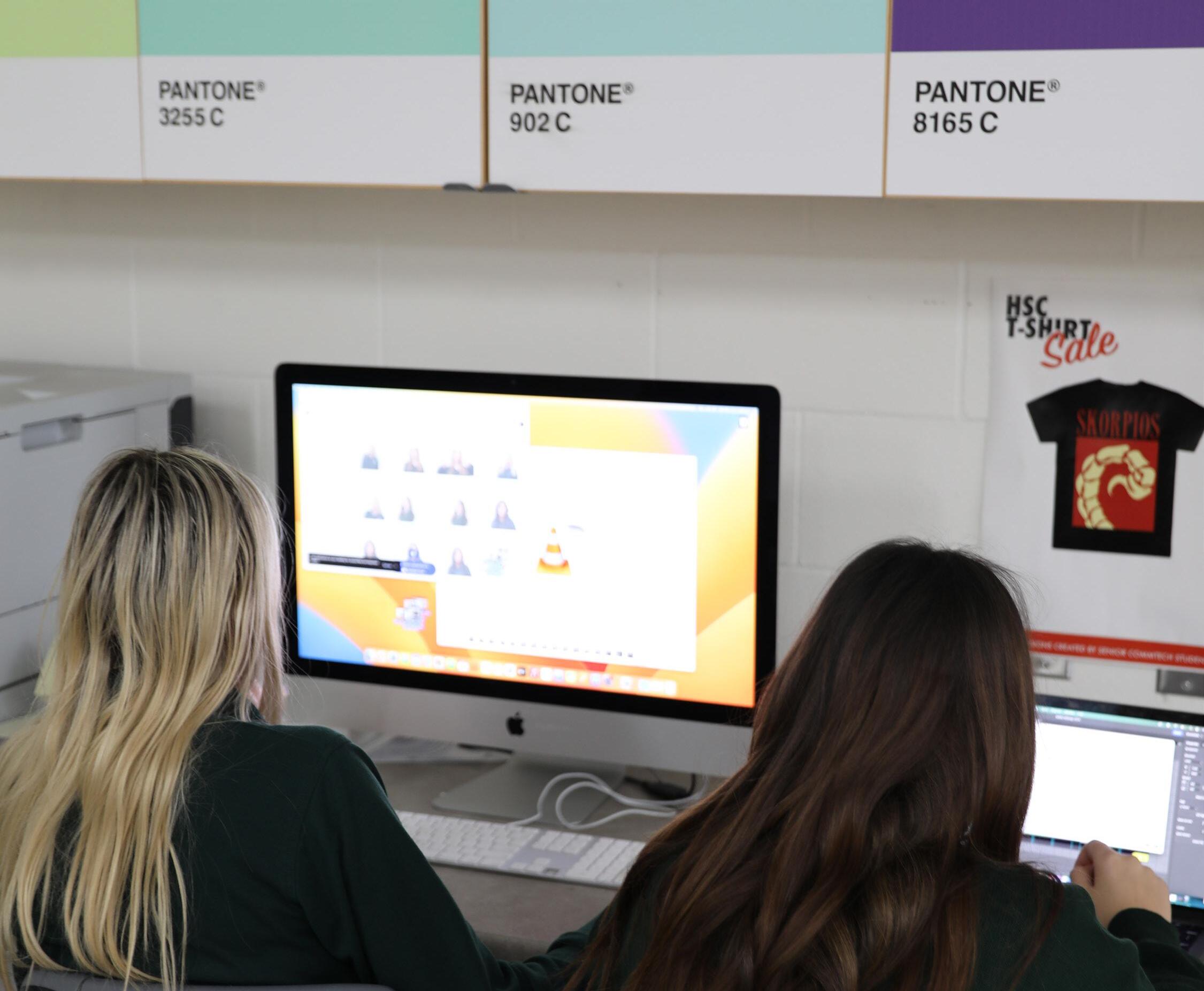
Hillfield Strathallan College
Senior School Academic Calendar 2025–2026
HSC SENIOR SCHOOL
The Senior School Faculty and Staff are always happy to assist you. Please do not hesitate to contact us.
905-389-1367
www.hsc.on.ca
TAYA CICCHETTI
Senior School Principal
ext. 229
MARC EDGAR
Senior School Vice Principal
ext. 220
NINA LEE
Senior School Vice Principal
ext. 142
ALLAN GAUMOND
Senior School Vice Principal, Student Life
ext. 141
JAN MORRISON
Vice Principal, Academic Administration (Grades 5-12)
ext. 233
YVONNE TESTA
Guidance & Post-Secondary Planning Director
ext. 266
HEATHER RODRIGUEZ
Senior School Administrator
ext. 196
CAROL MULVEY
Student Success Administrator
ext. 173
Respect. Integrity. Community. Individuality. Determination.
Our core mission is to develop joyful and engaged students who live life with purpose.
The best learning happens when students are happy to come to school, have opportunities to follow their passions, and participate in deep learning experiences that challenge them.
Joyful, engaged students develop strong relationships with their peers and with the caring adults who spark and support their learning both inside the classroom and beyond.
Their journey at HSC prepares students to live with purpose—to understand their world, inspire, lead, act, and make a difference in their own unique ways.

